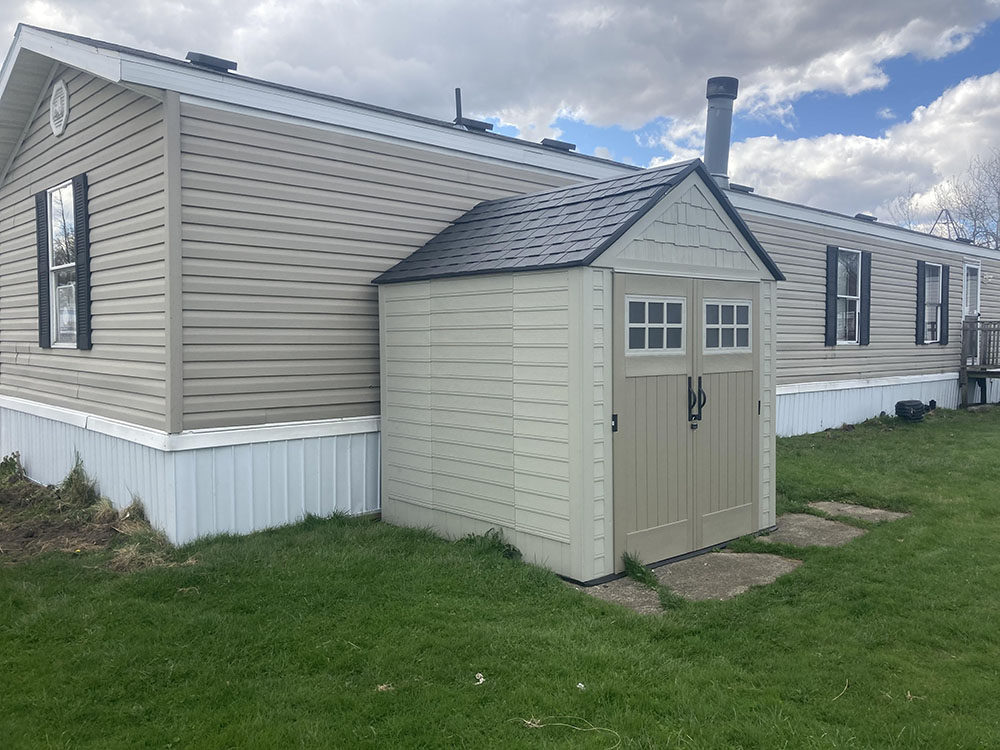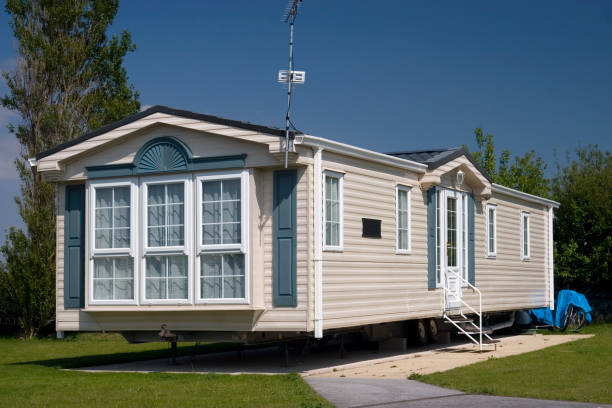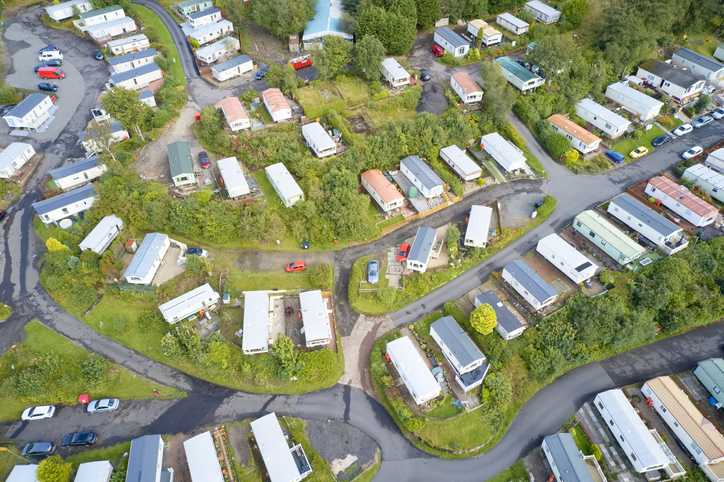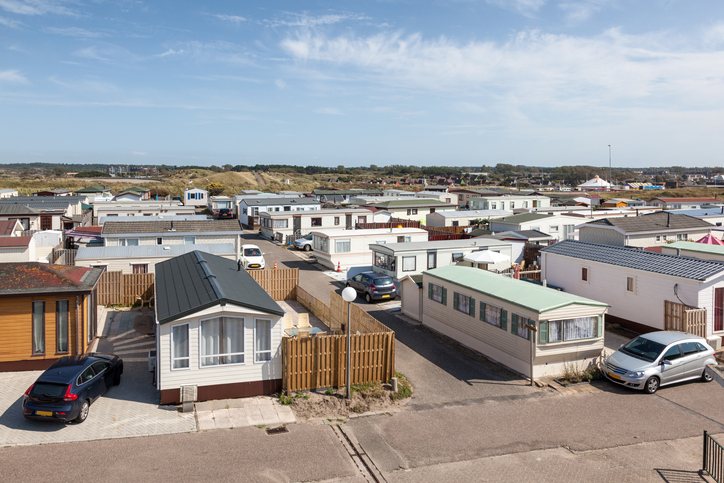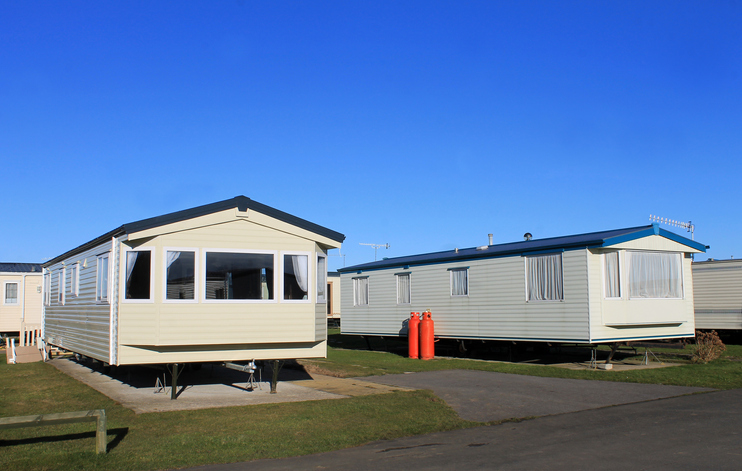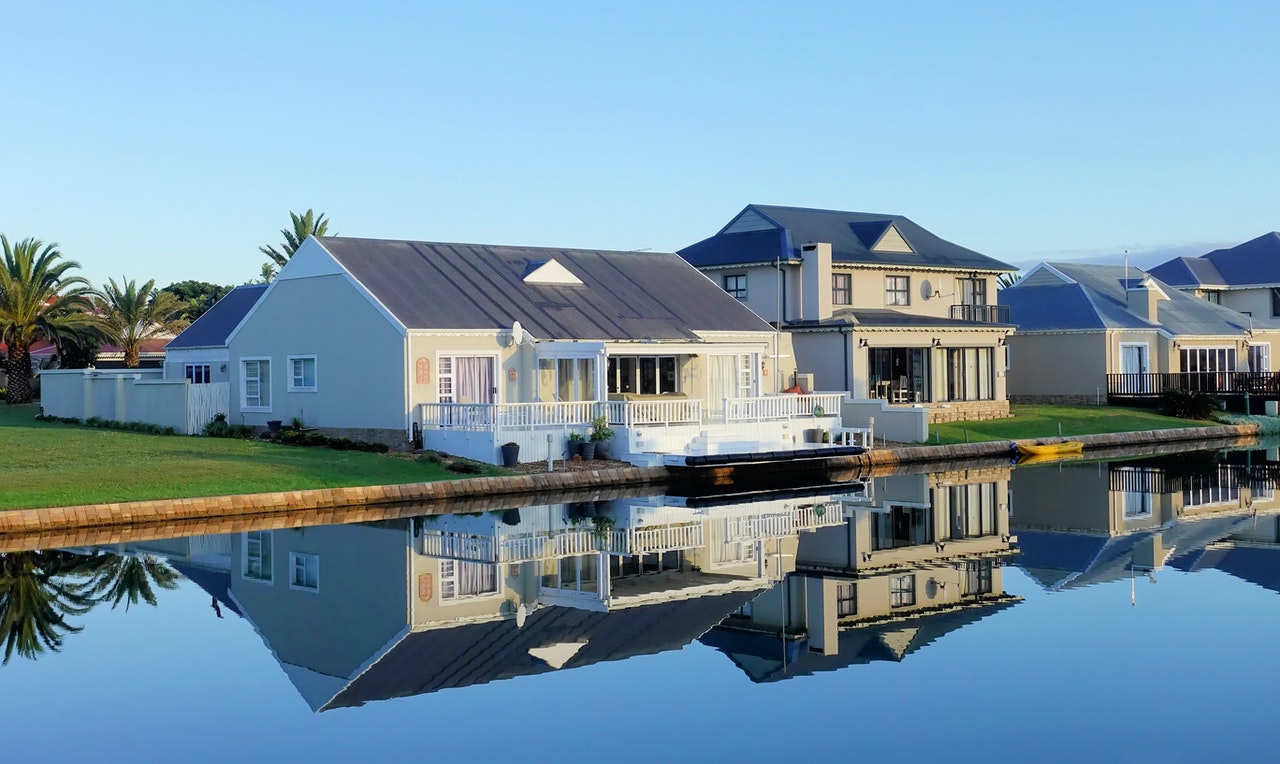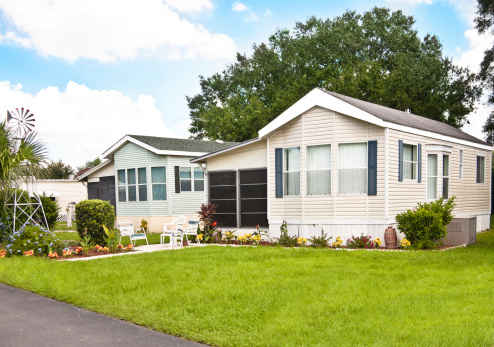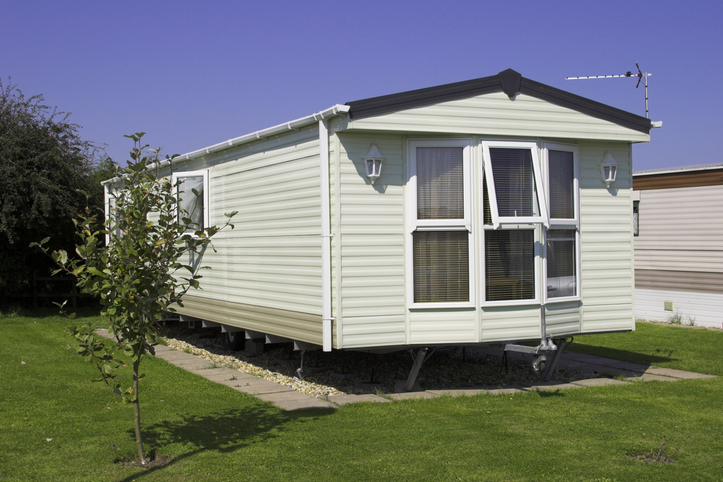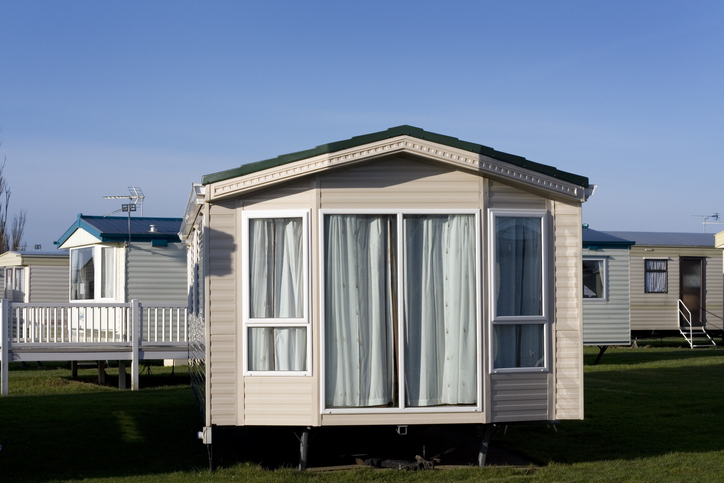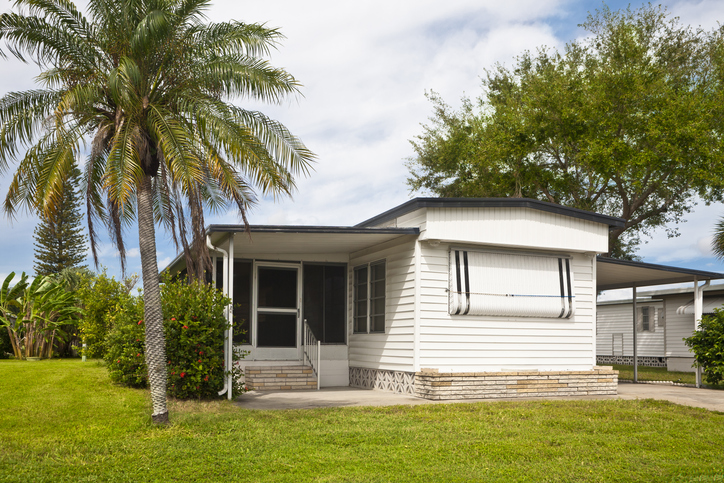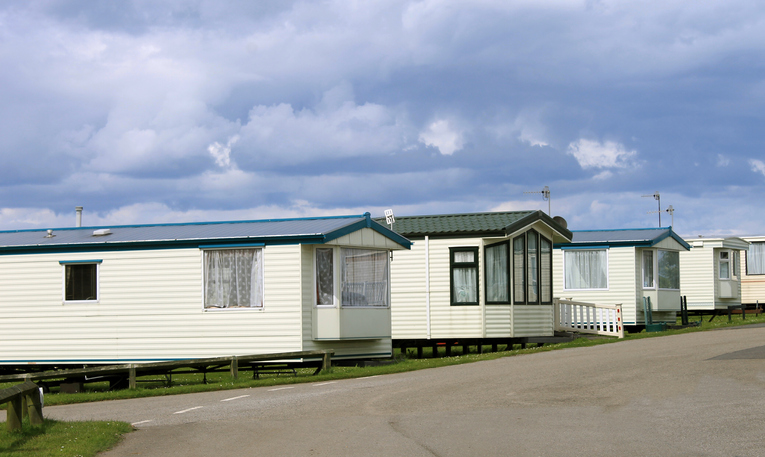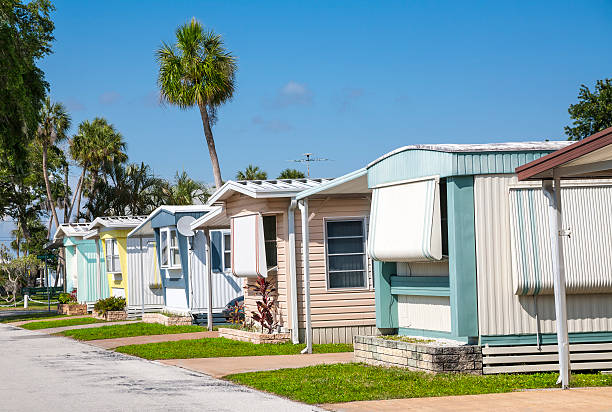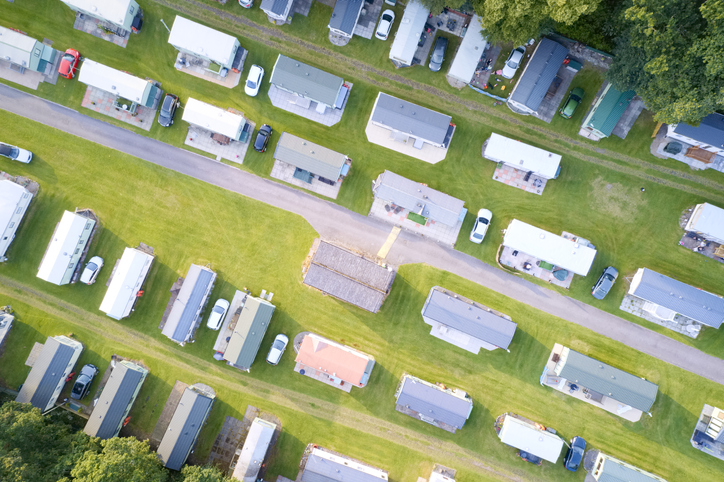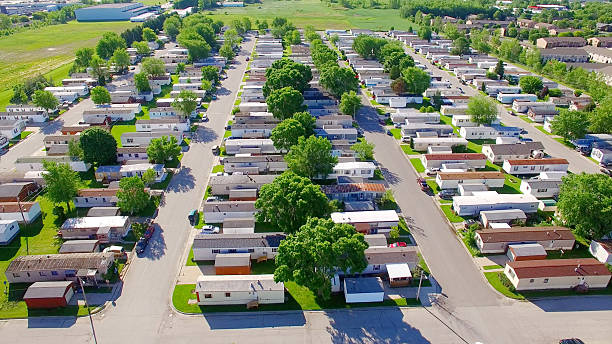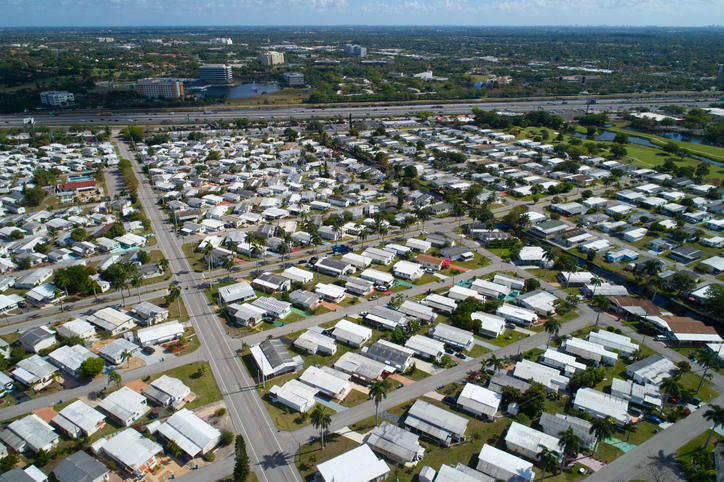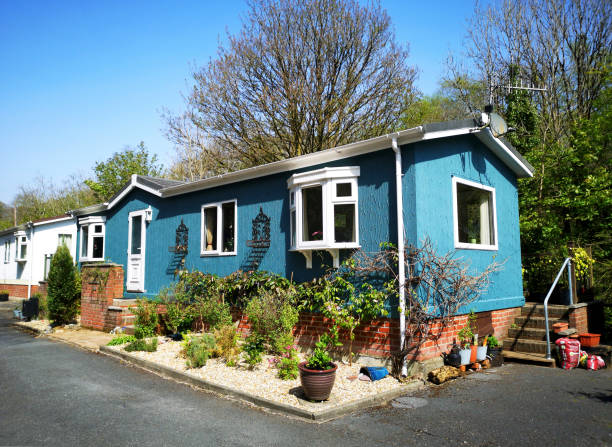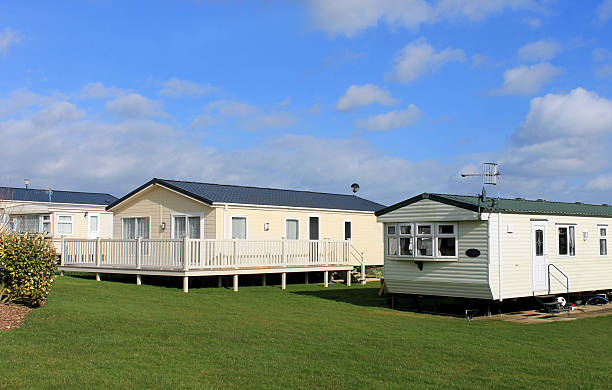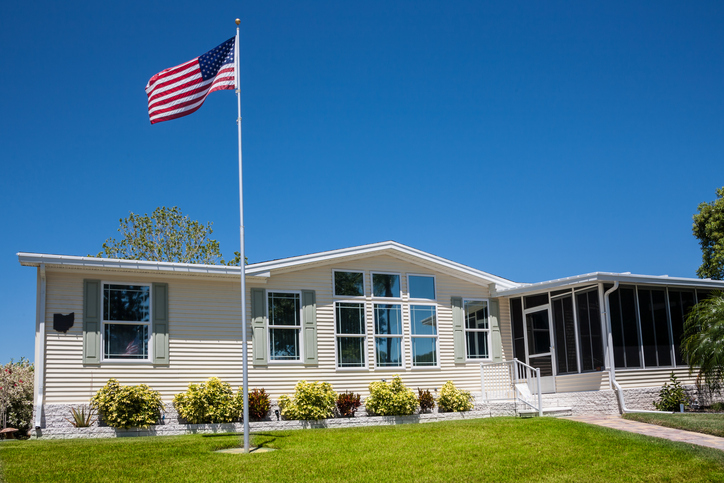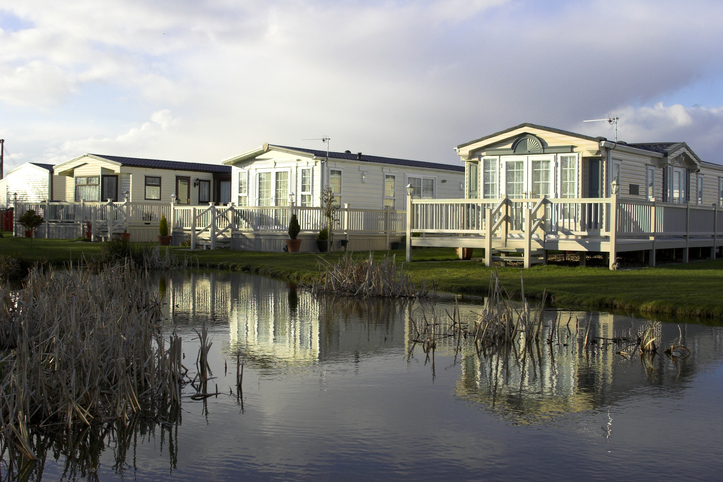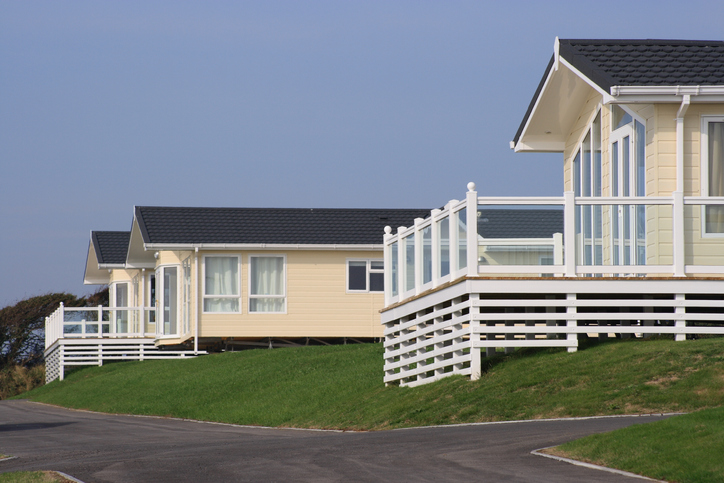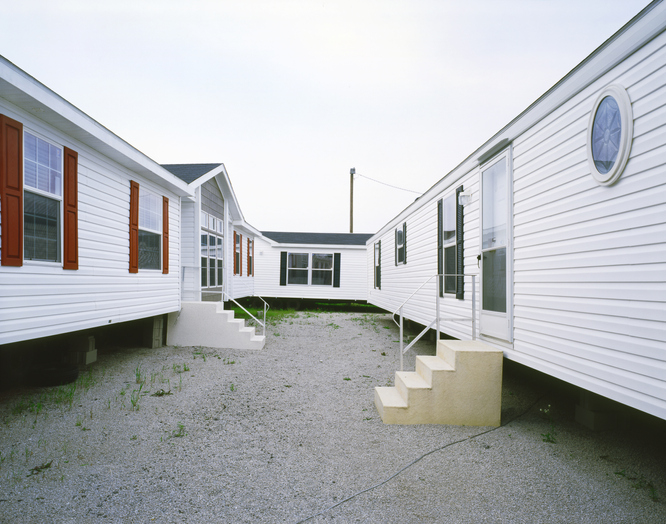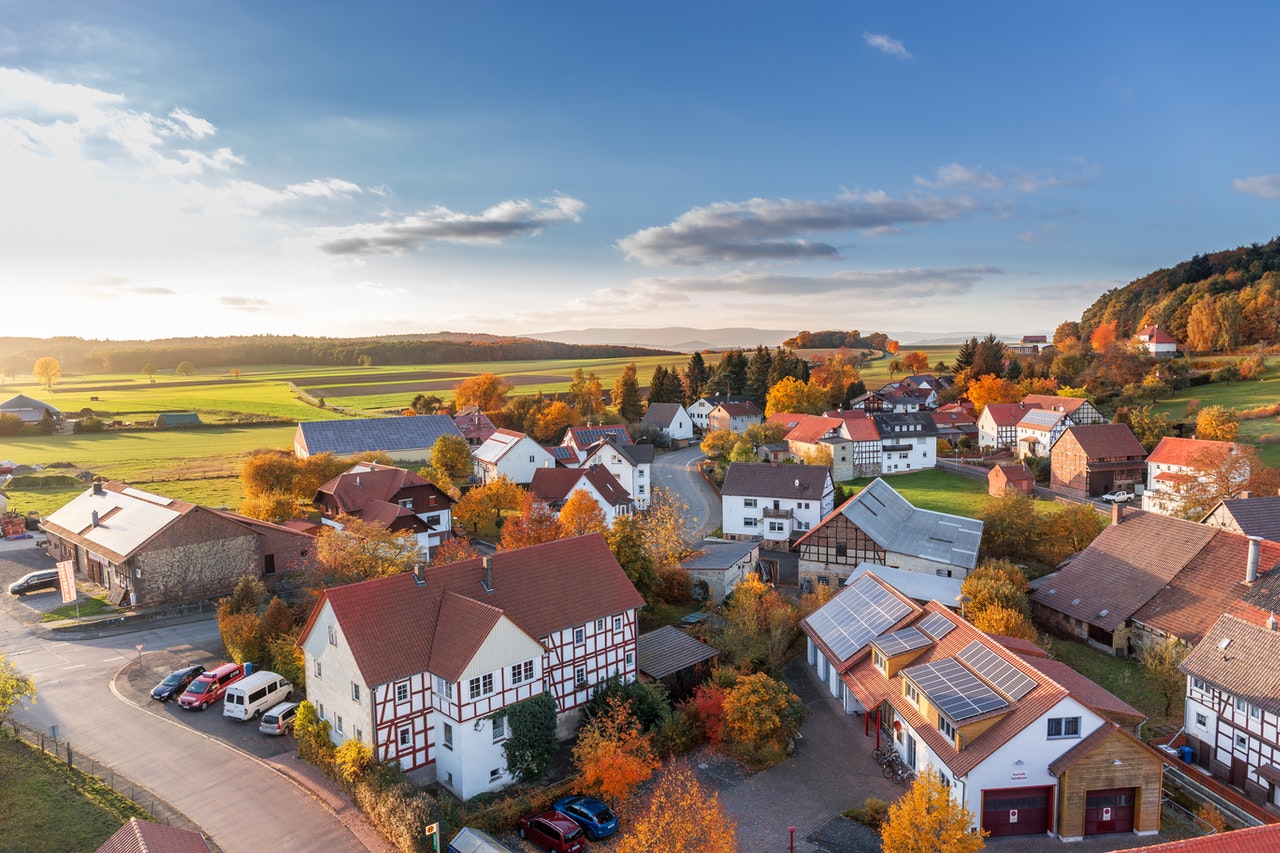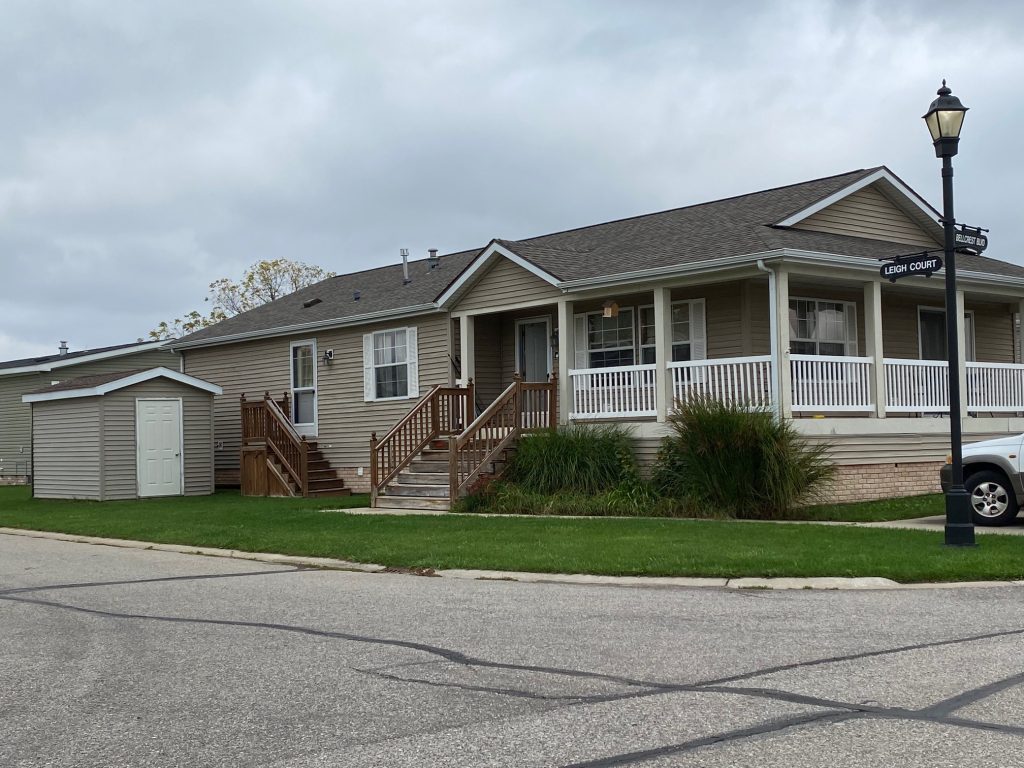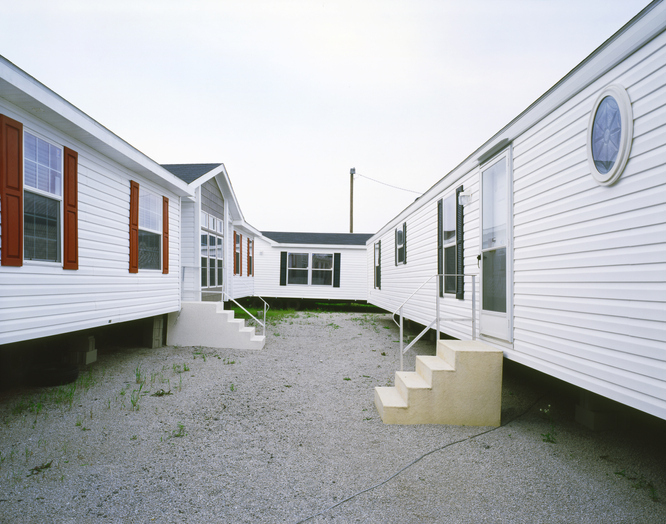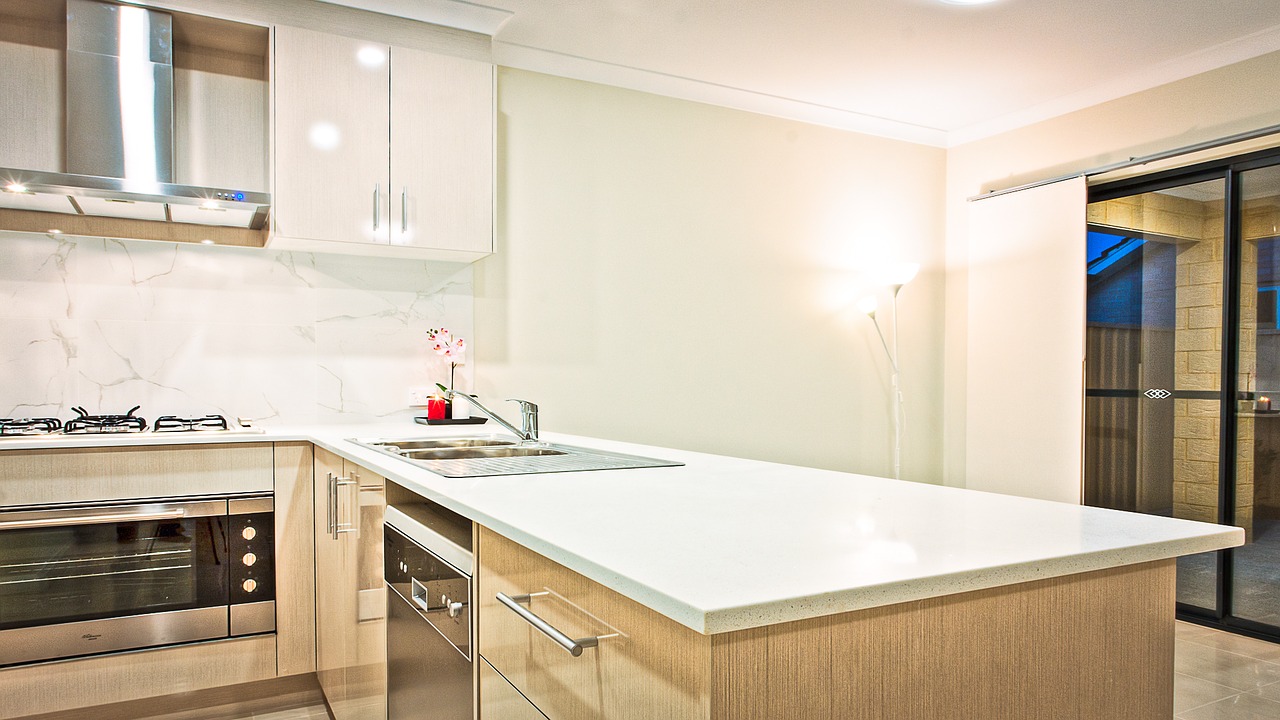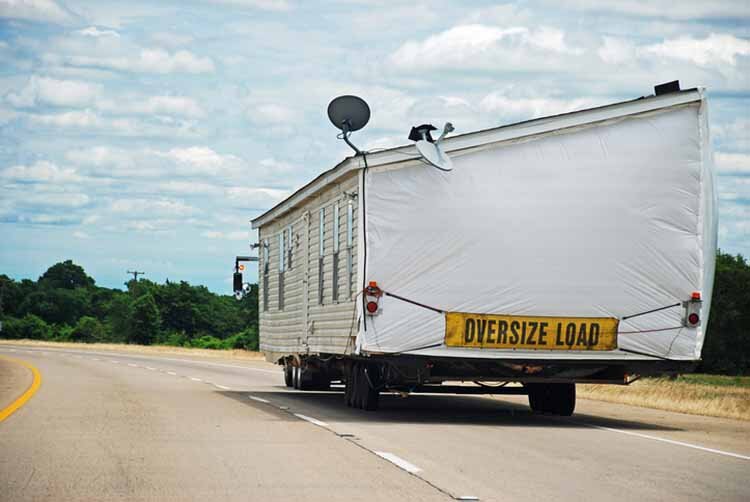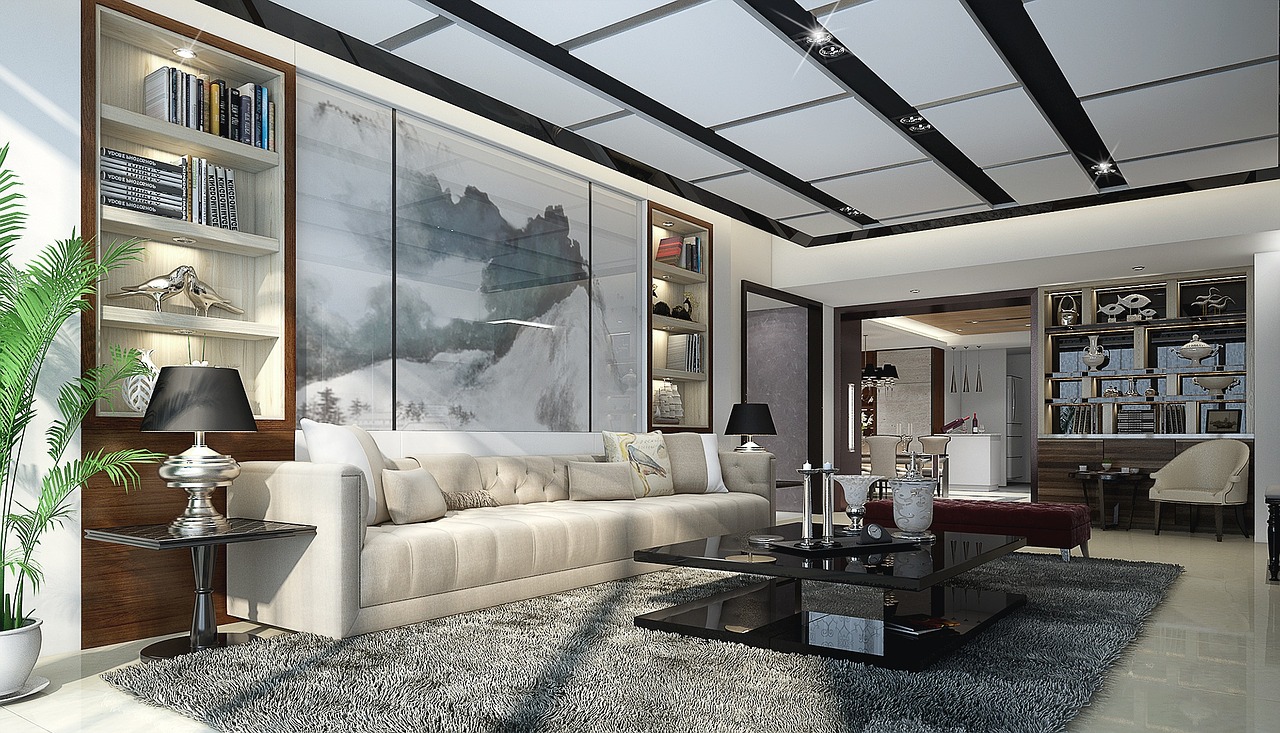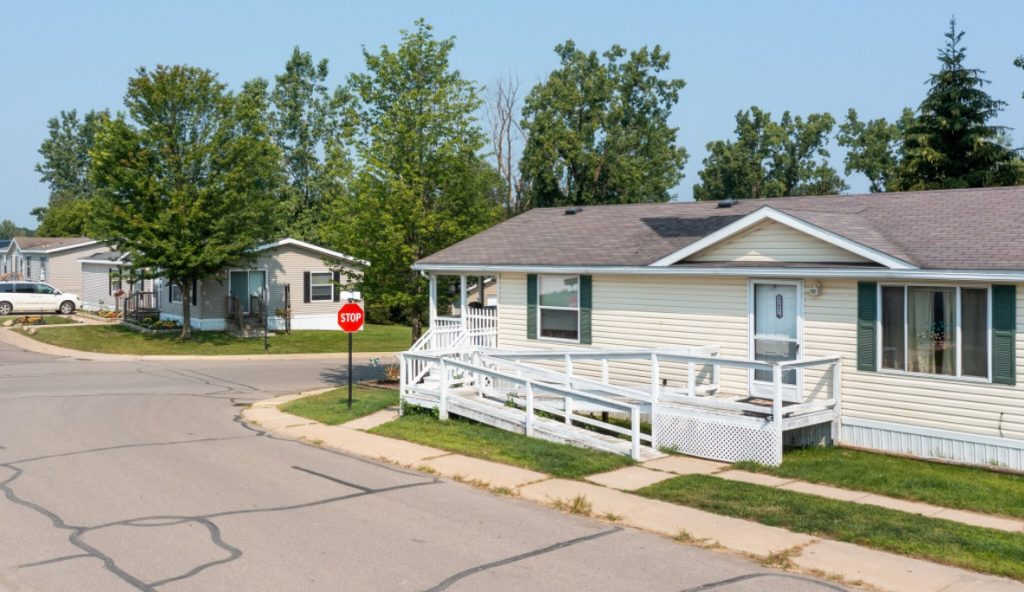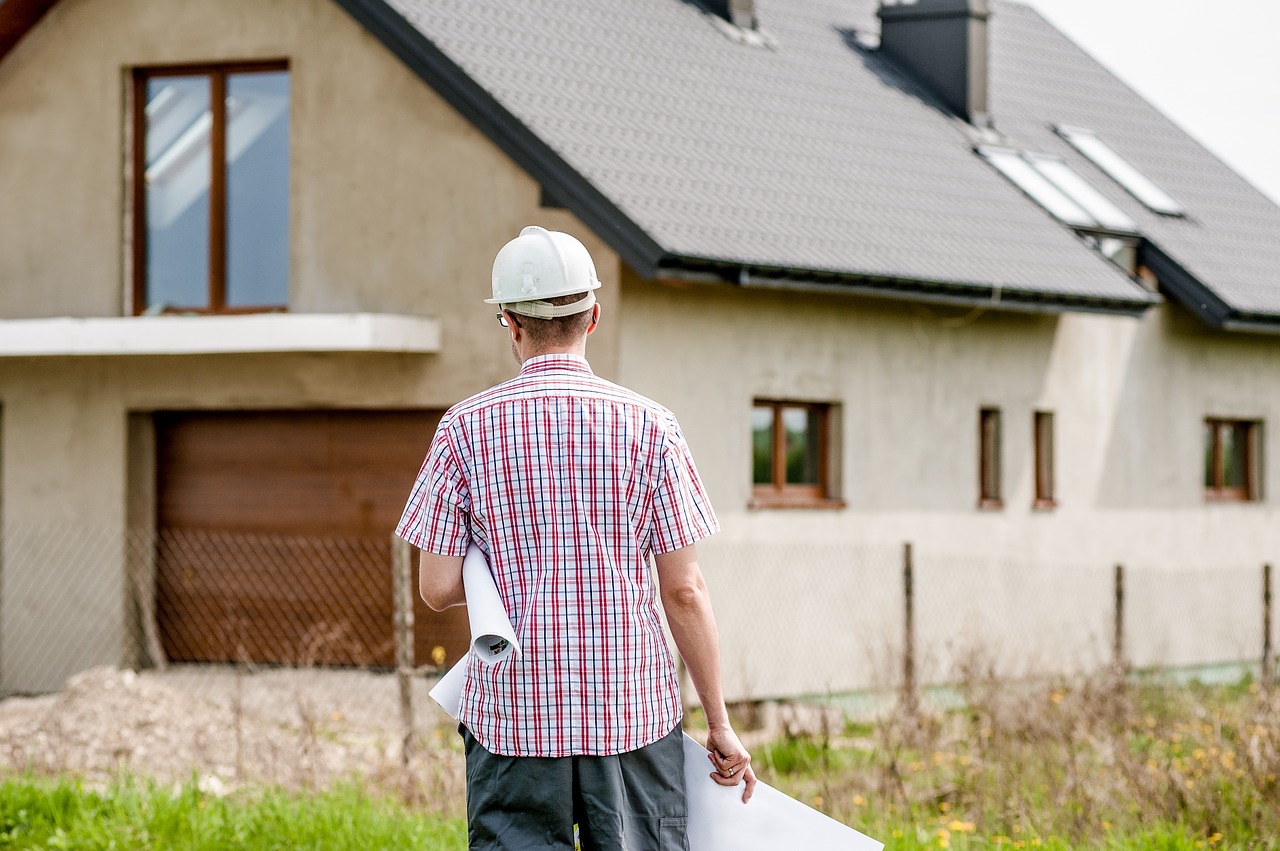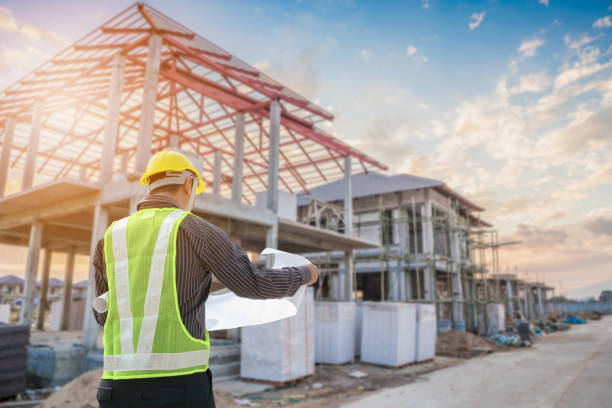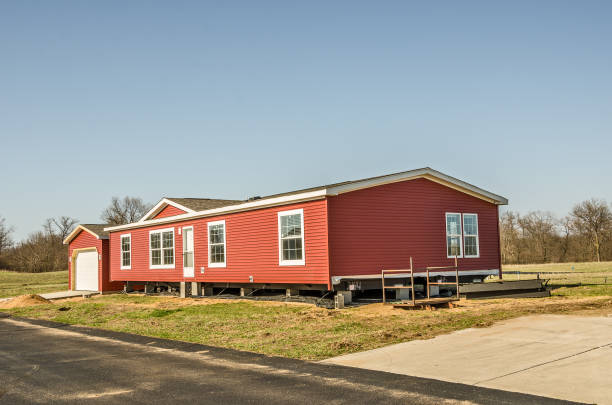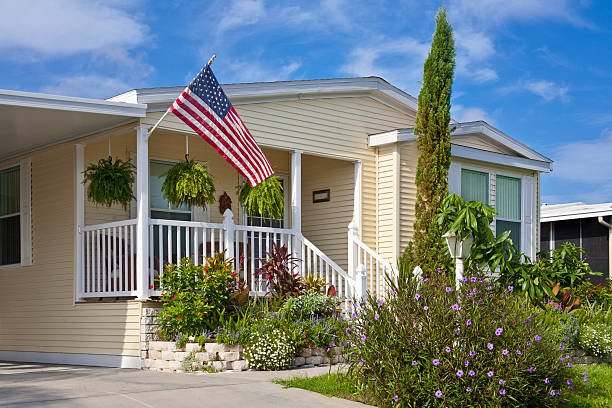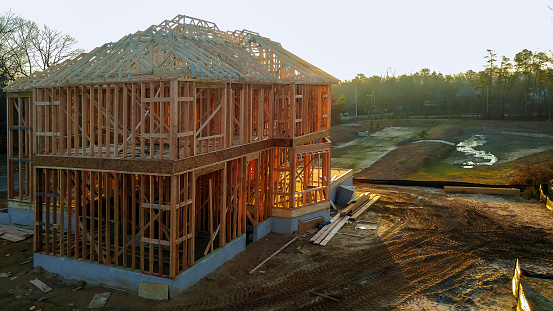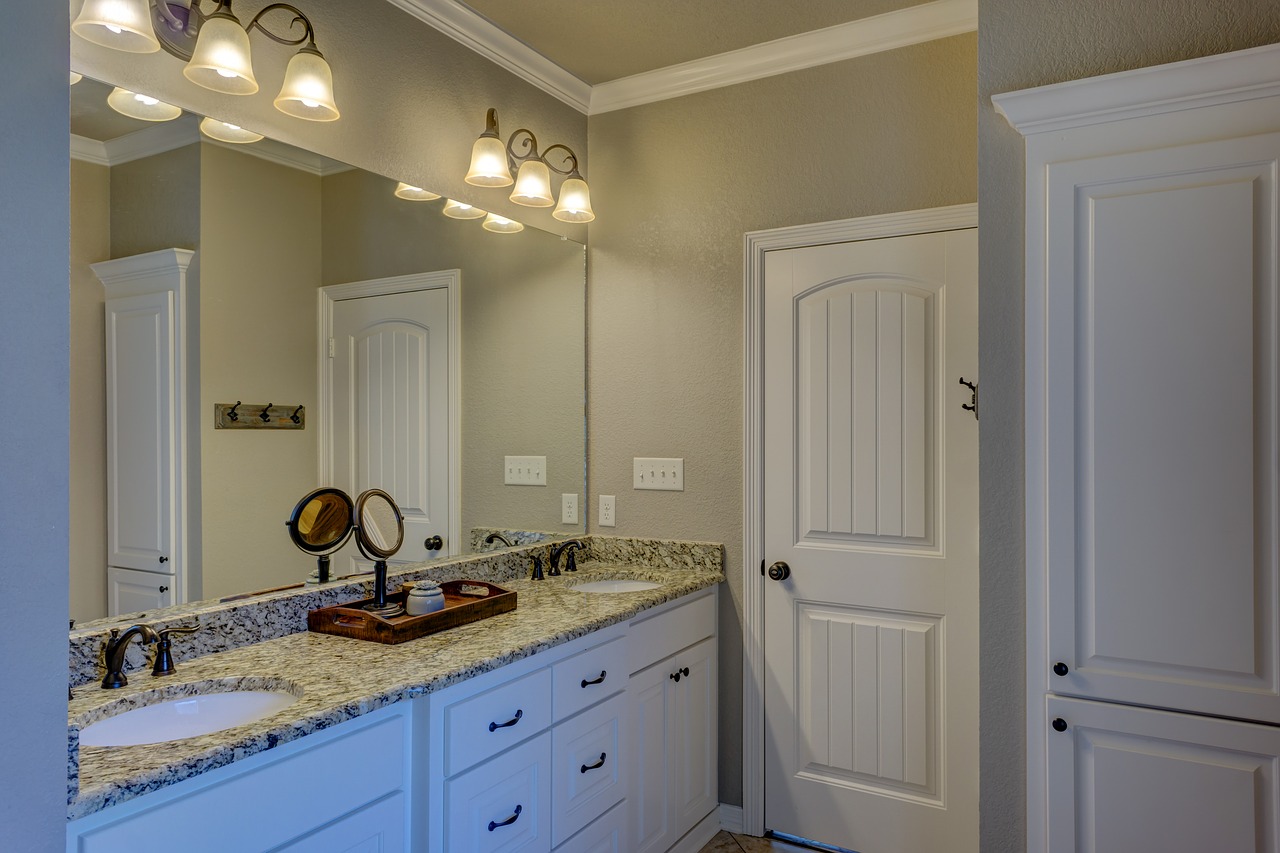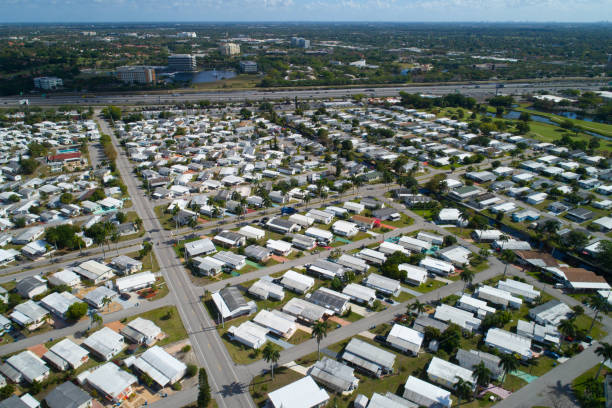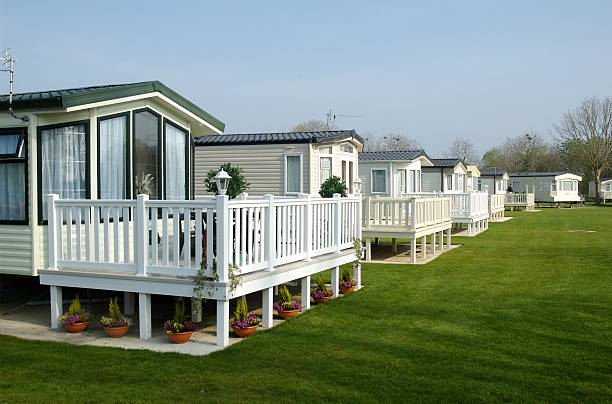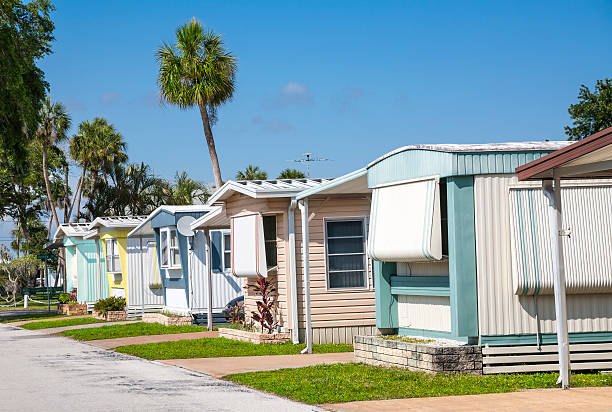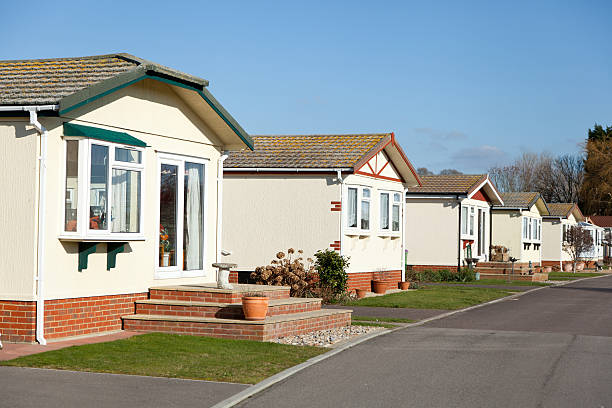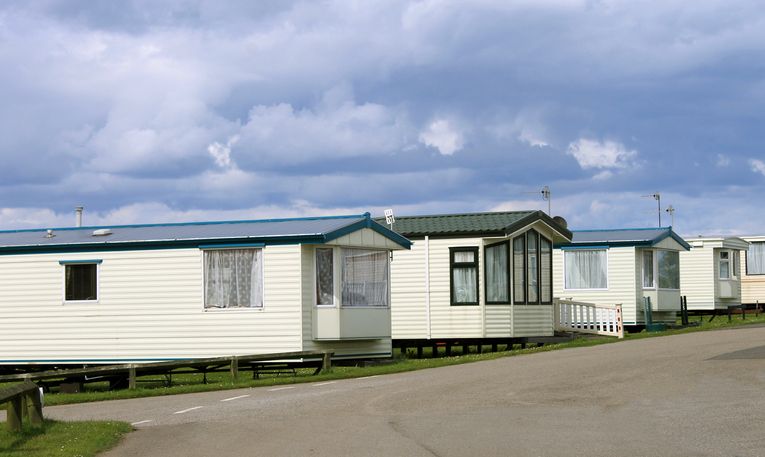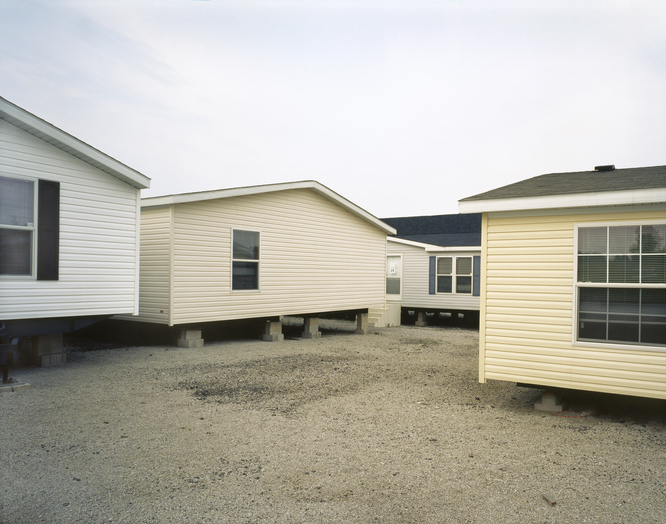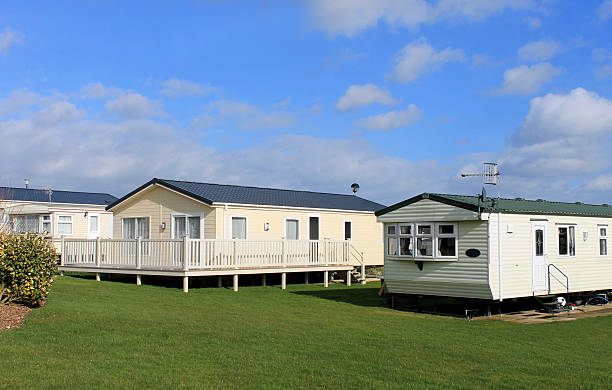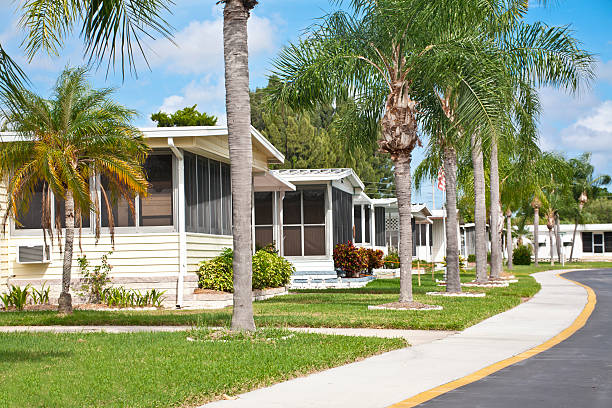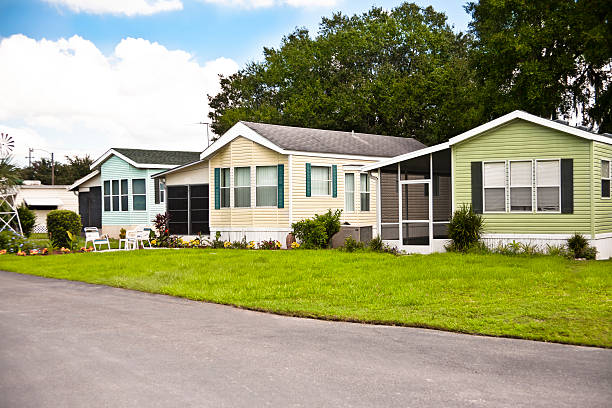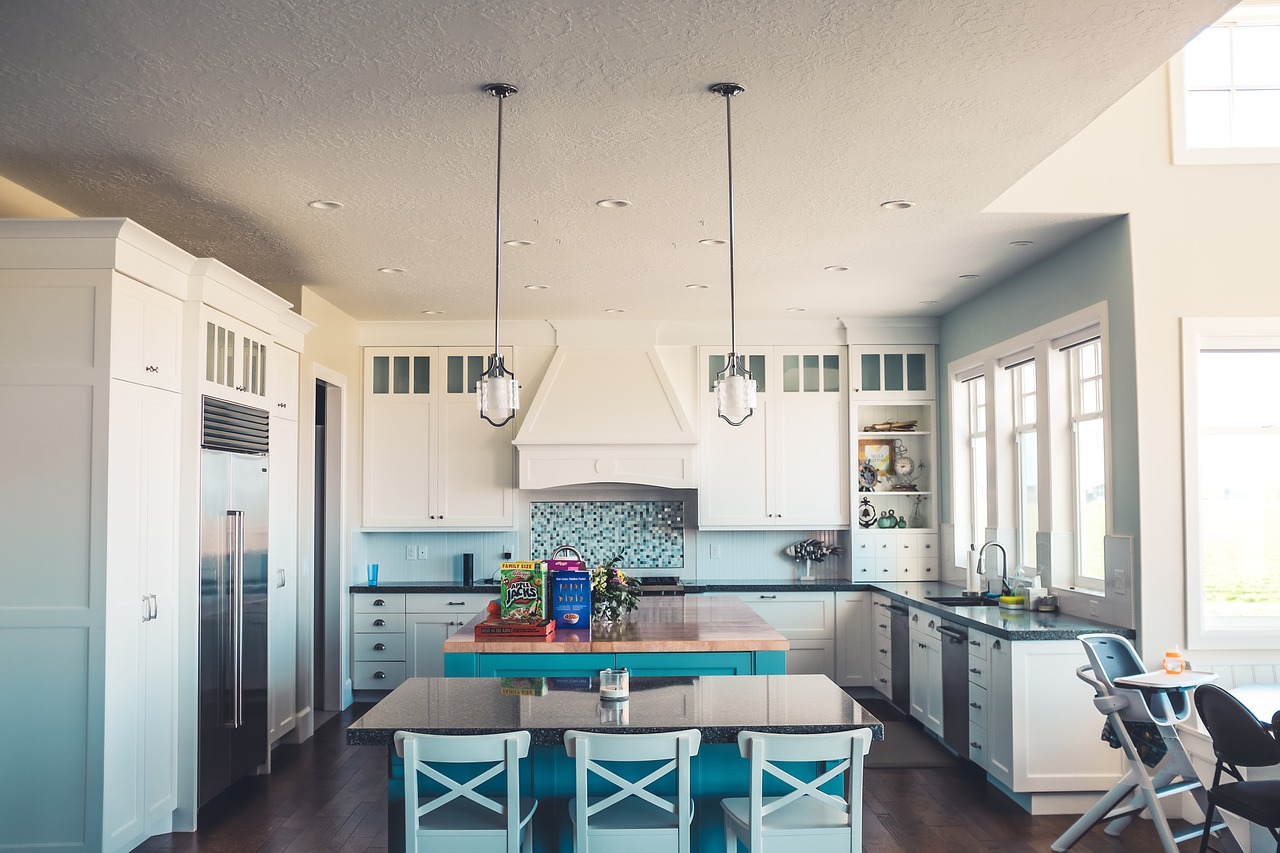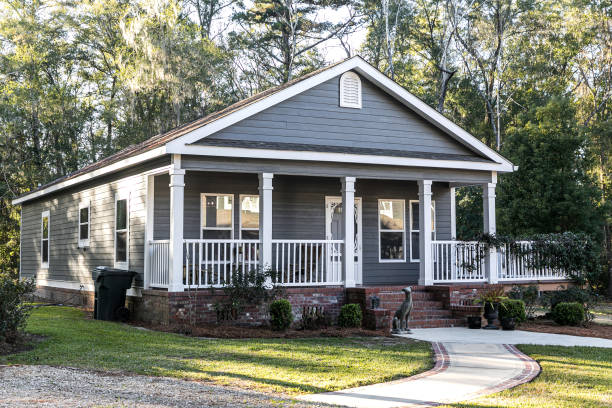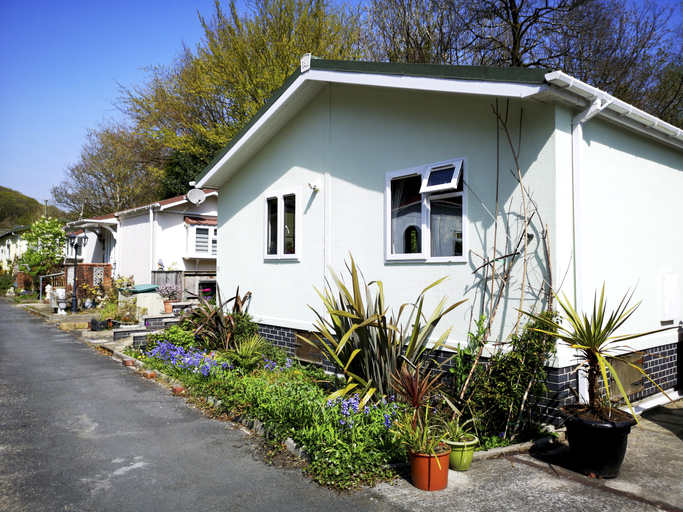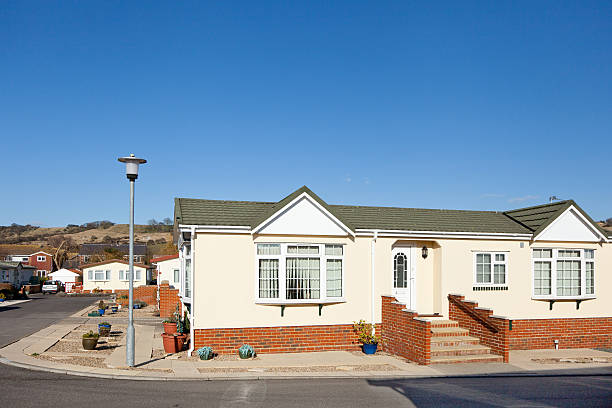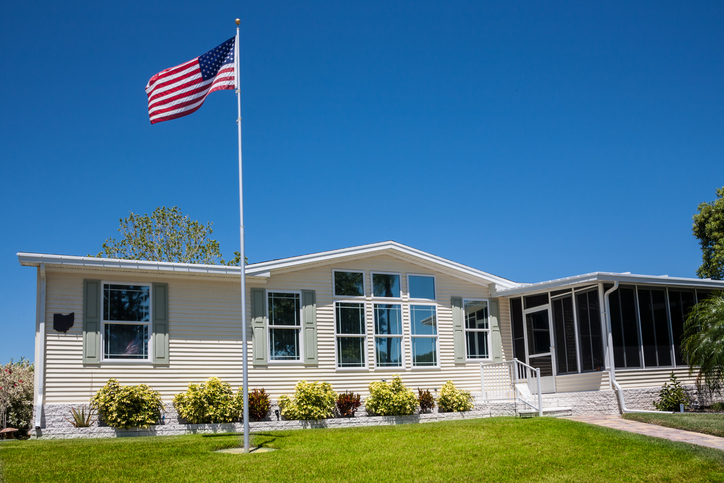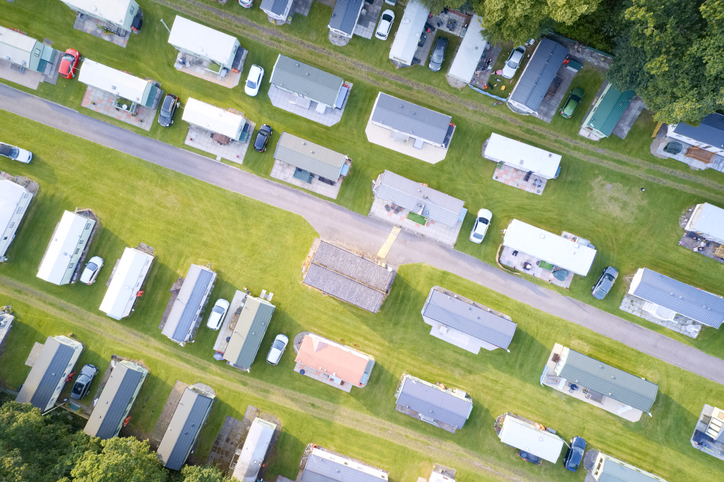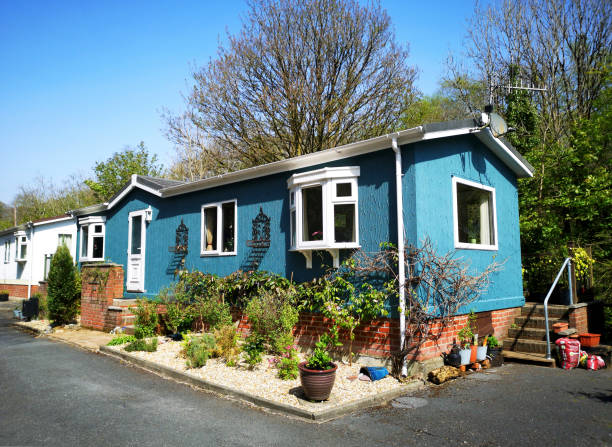4 years ago
·
Justin Becker ·
Comments Off on Used 2-Bedroom Mobile Homes for Sale: Top 5
Buying a dream home of your own in Cedar Springs, MI might seem like a far reach for most people, but it might be time to think outside the box now.
The price of a traditional brick or stick-built house may be too high, however there are some other kinds of real estate properties to consider. Among them are mobile homes and manufactured homes, especially when you check out the used models for sale instead of buying a brand-new home.
What are Mobile Homes?
Mobile homes are residential factory–built structures. Instead of the traditional way of building a house on a piece of land, how mobile homes are built are pre-made, and then transported to their intended venue.
At times, they might be on a leased plot of land or a mobile home park. Mobile home owners in Cedar Springs may also place the house on their own real estate properties, and then put it on sale when they want to move out. They may then make a sale of the house on its own, or include the land it is on.
Some people use the terms “manufactured homes” and “mobile homes” interchangeably, but there is a difference between the two. While a manufactured home is also factory-built, it is considered a home built after 1976, when the HUD Code for mobile homes was put into place.
Are there Mobile Homes in Cedar Springs?
Cedar Springs, MI is one of the best places to live in the whole state, maybe even the country. The price of housing is reasonable, especially when you search for mobile or manufactured homes for sale.
If you search for a used mobile home for sale in Cedar Springs, MI, you may find a likely one near the happening area of Grand Rapids.
Pros of Buying a Mobile Home for Sale
Before we check out the best places to search for mobile homes for sale in Cedar Springs, MI, we need to consider the ups and downs of this decision.
Here are the upsides of buying a used mobile home for sale in Cedar Springs, MI:
- The price will be lower than other types of Michigan real estate, since there’s less cost per square foot than traditional homes
- With lower prices, you may also be able to afford a larger space
- The affordability also means that you can have a flexible plan of action; there’s no need to commit to settling down in a certain Cedar Springs, MI area
- Higher standards due to inbuilt controlled environment
- Fewer delays due to inclement weather or issues in scheduling contractors
Cons of Buying a Mobile Home for Sale
- The value will depreciate very quickly, so you might be selling at a lower price
- Mobile homes on Michigan real estate, or anywhere else, are more difficult to finance, as they are personal property that lead to higher interest rates
- The cost to move a mobile home is not cheap
- They are on temporary foundations, which might prove risky in cases of extreme weather
Used 2-Bedroom Mobile Homes for Sale
Cedar Springs, MI certainly has a lot of choice when it comes to the search of mobile homes for sale. While you may need to read up on a few things about living in a single-wide mobile home, here are the best places to consider for now:
1. Cedar Springs Mobile Estates
If you’re ready to search used mobile homes for sale in Cedar Springs, MI, there’s probably no better community than Cedar Springs Mobile Estates. This is where you can get mobile homes at an affordable price, both for sale and on lease.
This community also has a very strategic and convenient location, being just a 20 minute drive from Grand Rapids. It’s also just a minute away from downtown Cedar Springs, a place with loads of activities, Cedar Springs, MI shopping opportunities, and other interests for all age groups.
Several retirees, young professional workers, and growing families have made their home in Cedar Springs Mobile Estates. It gives them a feeling of proper community and belonging, with everyone welcoming newcomers along with their pets.
If we check out the reviews from Cedar Springs, MI residents online or in any online advertising pages, we would find many more positive words about the place. There are several mobile home amenities in both the home and the property, as with most properties in Cedar Springs, MI. They also offer 24-hour maintenance services and some excellent Cedar Springs schools in the location.
If you’re looking for mobile homes for rent in Cedar Springs, MI, this community also has this option.
2. Leonard Gardens
With Leonard Gardens, potential mobile home buyers will find several features to make their stay enjoyable.
This community has been operating in the Grand Rapids on the west end for more than 25 years. It is also just a few minutes away from downtown Grand Rapids itself. If you’re maintaining a two bedroom mobile home, it could just be your dream home.
Leonard Gardens boasts a 25-year history in the area of Standale in Cedar Springs, MI. There are several shopping places nearby, along with many restaurants in Cedar Springs, MI of every kind, and several schools to boot.
Overall, a place here could be your dream home; it’s quiet, customer-oriented, and has a management that’s committed to giving you a hassle free experience while moving in or just daily mobile home living.
Yet another convenient factor is the nearby schools. These include Kinney Building, Alpine Elementary, Fairview Elementary, Walker Station, Zinser Elementary, and many others. There are playground and basketball courts for the kids and teenagers as well.
Keep in mind that they also have an on-site team that is dedicated to professional managing and maintaining the whole property in Cedar Springs, MI. What’s more, there are several planned activities and events for residents to enjoy during the year.
3. Ferrand Estates
Here, we have yet another community with a peaceful setting. This is in Wyoming, which is a Grand Rapids suburb near Cedar Springs, MI.
The community is welcoming to all age groups and makes sure to have some activities and interests for everyone. In addition to the picnic areas and hiking trails, there are also old courses and many find shopping areas to enjoy. Moreover, mobile homes promise several community amenities for making everyone’s life very comfortable.
Other amenities here include a swimming pool, clubhouse, and playground to boot. This makes the place attractive for youngsters. People in general will also like this place based on the nearby picnic areas, the grass recreational area, and the promising school district this community falls in.
The nearby schools here include West Godwin Elementary School, Grandville High School, and Grandville Middle School.
4. Prescott Community
The Prescott Community provides two bedroom mobile homes for sale, along with many other types of floor plans, and it’s a community that welcomes all people of all ages. The Prescott area is in Grand Rapids, and the community itself is just a couple of minutes from several local shopping and dining opportunities.
You may not want to get your family excited just yet, but Prescott has a lot to offer. The amenities inside include a fun playground, planned activities, a swimming pool, picnic area, and basketball courts as well!
Overall, this community just might be the one for you. Even if you don’t buy a manufactured home here right away, there’s nothing wrong with looking around. You can save money by buying a fixer-upper mobile home and looking up mobile home maintenance tips to fix it up to shape!
5. Grand Village
Grand Village is owned by Sun Communities, and is a very reasonable place for your next home. Not only do they have mobile homes for sale, but you can also rent one according to your needs. It is located in the city of Grand Rapids.
The used mobile homes within this community can help many people become homeowners. They can then settle down and enjoy the convenient shopping places nearby, along with fine dining facilities, entertainment options, and decent schools.
The environment of Grand Village is a quiet one, just south of Grand Rapids. The peace and serenity here is accompanied by a friendly and welcoming community.
Overall, everyone helps out to give the new owners a sense of belonging. Even the management staff is well-trained and would always be ready to help out.
One can become a member at the clubhouse in this area, or simply start a friendly game of basketball to start knowing everyone better. If you have children, you can take them along and let them enjoy the feel of nature in the playscape area.
The Takeaway
A used mobile home in Cedar Springs, MI, can provide a nice cost-effective dream home for small families, couples, and individuals.
We do have to consider the pros and cons of this area, along with determining how important they are for our lifestyle. Everyone in Cedar Springs, MI knows the attraction of Grand Rapids, while the low prices of used mobile homes are certainly tempting.
With that said, do consider the laws in your preferred area, as well as the price of low-cost stick-built houses there. Conduct your research first, and then go for a used mobile home in Cedar Springs, MI!
Read more
4 years ago
·
Justin Becker ·
Comments Off on Living in a Single-Wide Mobile Home: Things You Should Know
Mobile home living is a popular housing option among Americans. According to figures from the manufactured housing sector, an estimated 20 million Americans live in mobile homes.
Ideally, mobile home living has been around for a long time, and their affordability has greatly aided their expansion. Many aspiring homeowners are blown away by the prospect of saving up to 30% when purchasing a mobile or manufactured home.
According to Homeowners, the growing trend of mobile homes is unquestionable, with 56.4 percent of mobile homeowners living in their present house for more than ten years.
Living in a Single-Wide Mobile Home
When considering investing in mobile home living, it is important to understand the manufactured housing market to make informed judgments.
Mobile houses, for example, come in a variety of styles, including manufactured and modular homes.
Knowing what kind of house you desire can make a major difference in your family’s happiness and budget. With that in mind, we’re going to tell you everything you need to know about mobile home living in a single-wide trailer.
Before we get into the intricacies, let’s define a single wide mobile home.
What is a Single-Wide Mobile Home?
Single–wide homes typically range from 12–18 feet wide by 48–80 feet long and are completely constructed in a factory before being delivered to the home site.
They are available in various widths, lengths, and bedroom-to-bathroom arrangements, as they range in sizes from extremely small to extremely enormous.
The most common dimension is 72 feet long by 16 feet wide, with a total square footage of 1,080 square feet.
It is also known as a single-section home.
Since a single-wide mobile home is smaller than a traditional home, it can frequently be hooked to the back of a truck and relocated without difficulty.
Single-wide mobile homes do not give the same floor area or living rooms space as double-wide homes. Since double-wides are much larger than single-wides, you will have significantly more living space.
Here are things you should know or think about when buying or renting a single-wide home.
Single-Wide Home Quick Construction
Dealing with contractors has proven to be a frightening experience for many individuals over the years, with many people testifying to their poor experiences with contractors leading to delays in construction and appearing to extort the homeowners.
The construction costs wind up being higher than anticipated as well.
Manufactured homes, unlike traditional homes, have a smooth building process and are more energy-efficient than their counterparts.
Mobile homes are constructed in factories, and each stage of construction is overseen by experts, cutting the construction time in half.
Before the home is released to the designated owner, it is inspected both during and after the construction period to satisfy manufactured housing industry standards.
On average, a buyer should expect the entire process to take between 60-90 days, from when the house is built to the day they move into their new home. However, the actual construction usually takes a few days.
On the other hand, traditional real estate homes take longer to build. According to the Census Bureau’s 2019 Survey of Construction (SOC), a single-family house takes slightly over eight months to complete.
You Won’t Break the Bank
Because of its affordability, several communities have selected mobile homes as their primary housing option.
Since many ordinary Americans cannot afford to live in a stick-built home, many choose to live in a mobile home.
In August 2020, the average price for a new single-wide manufactured home was $57,700, according to the Census Bureau.
The cost of constructing a traditional home is even higher. The nationwide average cost to build a new home in 2021, according to HomeAdvisor, was $287,466.
Housing costs also continue to rise, making it impossible for the typical person to acquire a traditional home.
Flexibility in Design and Amenities
In comparison to previous generations, today‘s mobile homes are technologically advanced and adaptable, in terms of design.
The majority of manufacturers allow their customers to select the type of design they desire for their homes.
Despite the fact that prefabricated houses do not have the same architectural freedom as site-built homes, they provide prospective buyers with various choices.
You’ll be shocked by how many features a manufacturer may include in your home today.
Even though single-wide home floor plans are not as large as site-built home floor plans, they manage to make a significant difference in amenities.
Single-Wide Homes are Energy-Efficient
Manufactured homes, as they’re now known, are manufactured in accordance with the HUD Code. This implies that they must achieve the appropriate energy-efficiency standards before being released to a new buyer.
Furthermore, as technology has advanced, manufacturers have begun to use high-quality materials to construct mobile homes.
You can feel guaranteed that your home will be energy-efficient with that in mind. Furthermore, many manufacturers allow you to select the energy add-ons you want.
An energy-efficient home will save you thousands of dollars, which you could use for other things every year.
The best thing about mobile homes is that you can easily improve their energy-efficiency once you have them. For instance, if you decide to insulate the walls, ceiling, or floors, or install solar panels on the roof, it’s very easy to do so.
You Can Buy in a Mobile Home Community
Before you buy a mobile home, you must first determine whether you want to live in a mobile home community or purchase private land and place your home on it.
If you choose to live in a mobile home park, you will likely be able to take part in several advantages that many people who live in traditional homes do not have access to.
As a result, if you opt to live in a mobile home park, you will benefit from the following advantages:
Park Amenities
The park amenities are a significant advantage of mobile home communities over placing on private land. Fitness centers, playgrounds, and swimming pools are just a few of the amenities available in many mobile home parks.
Furthermore, many park owners host events for residents to participate in and enjoy. If you choose site-built homes or private land, you will not enjoy these same luxuries.
Privacy
In most apartment rentals, a wall separates you from your neighbor. As a result, you can hear music from the other side from time to time, which can be annoying, especially when you need some peace.
On the other hand, mobile homes are properly spaced (not too close or too far apart), so you won’t be bothered by your next-door neighbor. As a result, if you need to relax in your yard, you won’t have to be concerned about annoying noise from your neighbors.
No Taxes
When it comes to property taxes, mobile homes offer a significant benefit. If you own the mobile home and not the land, you will pay personal property tax to the state motor vehicle department.
On the contrary, a site-built homeowner is subject to real estate property taxes, which can be a significant additional financial burden on top of a mortgage.
If you own both the home and the land, however, it will push you into a different tax bracket. When mobile homes are affixed to real land in South Carolina, for example, they are taxed as real property.
Little Maintenance Cost
Traditional homes are infamous for their high upkeep costs. Any maintenance is entirely your duty as the owner of a site-built structure.
In contrast, mobile home residents often spend a little on maintenance since the park managers care for the major maintenance issues.
In addition, when compared to site-built homes, mobile home parks offer services, such as landscaping, at a lower cost.
Convenient Location
Most mobile home parks are strategically placed, so you can take advantage of the convenience of being close to practically everything you need, such as grocery stores, public parks, and transit, just to mention a few.
You Can Buy a Mobile Home and Place it on Private Land
Aside from purchasing a mobile home in a park, you also have the option of putting it on your property.
Although you may not be able to make use of the perks of living in a mobile home community, you can still take advantage of installing your own home on private land.
With that in mind, check out the following advantages of building your home on private property:
Flexibility
Stick-built homes are less flexible than mobile and manufactured homes. In contrast to typical residences, mobile homes are constructions that may be dismantled and relocated.
You might also just move the mobile home and replace it with a new one or construct a new traditional residence, if you so wish.
As a result, if you don’t have the funds to build a regular home right now, you have the freedom to do whatever you want in the future with mobile homes.
Return on Investment
When it comes to mobile homes, most people are concerned about the depreciation of the home‘s value.
Putting your home on private land, on the other hand, is an excellent approach to protect the value of your investment. Your home’s value will be maintained or slightly reduced due to routine upkeep, but the land will compensate due to its ever-increasing value.
As a result, if you hold the land for a long period, you should make a good profit.
Disadvantages of Mobile Homes
While mobile homes have many advantages, they also have some disadvantages.
As a result, below are some of the disadvantages of mobile homes:
Image Problems
Mobile homes suffer image problems. The mobile housing sector is rife with stigma, as many people associate the homes with poverty and low quality.
With that said, many people have recently begun to accept the function of mobile homes because they offer a low–cost alternative to buying a home.
Local governments have also relaxed their strict laws to allow mobile homes to thrive.
Not So Mobile
Although the term implies that the home is mobile, it is not a simple task to achieve, in practice. On private land, the residence is frequently built on a permanent foundation, so any attempt to remove it could compromise the home’s structural stability.
When relocating, you don’t just throw your home on the back of a trailer alongside your belongings. The process requires the services of professionals, and it is not cheap.
Value Depreciation
Value depreciation is one of the most serious drawbacks of mobile homes. Mobile homes have a bad reputation for not holding their value over time.
However, buying a mobile home, rather than renting an apartment, is a better long-term investment.
Financing a Mobile Home
Although mobile homes are affordable housing options, that doesn’t mean financing is easy. The typical method of borrowing does not apply to mobile home finance.
Manufactured homes are typically considered personal property and are not eligible for traditional mortgages, like real estate residences.
However, this isn’t to suggest that you won’t be able to finance your mobile home. There are several options available to you when it comes to securing your property.
Even though your alternatives are limited, you may be able to secure a portion of the funds needed to purchase the home.
If you place your property on private land, it will increase your mortgage possibilities. It will be classified as a real estate asset and, as such, will be eligible for a traditional mortgage in the same way that real estate homes are.
Furthermore, having a strong credit score will result in better loan terms for your property, which will end up saving you money. With that said, you’ll get better loan rates if your credit score is 750 or higher.
The following are the typical mobile home loans options:
Each loan has its own set of requirements, so read them all and see whether you’re able to meet them.
Mobile Homes are Built to HUD Standards
It‘s the sole type of affordable housing governed by the Federal Housing Urban Development (HUD Code), superseding local and state codes.
Most manufactured homes lacked sufficient guidelines to manage the mobile housing sector prior to the 1976 Act. As a result, the quality of today’s manufactured homes is far superior.
The HUD Code was created to ensure that homebuyers live in a safe and secure environment. For example, mobile homes are built to meet fire safety regulations.
Cutting Edge Materials
Mobile homes are constructed with advanced materials that improve the home‘s quality and efficiency.
Today’s mobile home is significantly more advanced compared to 50 years ago, and it looks so much more like a traditional home that you can’t tell the difference once you’re inside.
These cutting-edge materials allow a mobile home to be weatherproof and resist adverse weather conditions.
Furthermore, the HUD’s requirements ensure that the quality of mobile homes is maintained before they are released to a new homebuyer.
Environmentally Sound
Mobile home construction pollutes the environment far less than their counterparts, real estate homes. For this reason, mobile homes are environmentally friendly.
How is the mobile home environment friendly?
Mobile homes are constructed in factories, and every part, from vinyl walls to roofing, just to name a few, or contrition materials are measured and cut beforehand, thus less wastage and dumping is required, unlike site-built homes.
Tips for Buying Your First Mobile Home
Many valid questions come to mind as a first–time purchaser, like:
- What‘s the best place to start?
- What‘s the best way to find the correct seller?
Trying to secure your first manufactured home without a guide or recommendations might be aggravating.
Fortunately, the tips provided below will assist you in gaining a foothold and completing the transaction as quickly as possible.
Plan
The most crucial step in purchasing a property is to plan. The housing option you select has a significant impact on various factors, including finances and job.
If you have an unstable income stream, taking out a mortgage to secure your mobile home living life may not be the best option for you at the moment. For example, chattel loans are similar to auto loans because they use the home as collateral.
With that in mind, if you do not offset the payment as required due to a fluctuating income, your home may be taken away from you, and you could lose everything.
Similarly, investing in mobile home living may not be the greatest option if you frequently move because you will have to relocate the home or purchase another in a different place, which is not cost-effective.
As a result, renting a manufactured home or looking into apartment rentals can be better.
To recap, the following are the most important things to consider before buying a manufactured home:
- Your Finances
- Possibility of Relocating
- Current Employment
Location
Before you consider mobile home living, figure out where you want to put the home. Your location will influence your access to amenities.
As a result, think about purchasing a property closer to the amenities you require, such as schools, hospitals, and grocery stores.
Also, keep in mind the monthly lot costs if you want to buy in a trailer park.
Compare Prices
Values vary by location, so you should compare prices in your area before deciding on a dealer who offers a discount.
Furthermore, once you’ve decided on a dealer, consider bargaining for a better package deal and save money.
Mobile Home Dealer
Locate a reputable mobile home dealer near your location. You can search online or ask friends that are knowledgeable about mobile home dealers.
After you’ve found a dealer, describe the single-wide home you want in detail. The floor plan is often smaller than a double-wide home, which features larger living rooms.
Look for companies that deal with manufactured homes in your area. The shipping cost and delivery time will be affected by the location of a provider in proximity to you.
In addition, you can readily return to the company if something goes wrong.
A dealer can also advise you on the type of flooring you should use, such as vinyl flooring or carpet, just to mention a few options. Most companies will let you decide on the kind of customization you want for your home.
New or Used Home?
Whether you want to buy a new or used mobile home is a decision that must be made.
Typically, used mobile homes will be less expensive, allowing you to save money after you’ve secured the home.
Finances
You have various mortgage possibilities; however, evaluate the rates and see if you can afford to pay them back.
It’s not the end of the world if you can’t. A rent-to-own mortgage is available from some financial institutions or manufactured home communities.
This implies you’ll be paying a higher rent each month in order to gain credits towards purchasing the mobile home.
Permits
If you place your home on private land, you may want to research the zoning regulations. As a result, check if the area where you wish to build your home is zoned for mobile home structures.
Conclusion
The affordability of mobile home living makes them a better housing option than site–built homes. Investing in mobile homes gives you equity over renting an apartment in the long term.
Although the value is thought to depreciate over time, this is not always the case. If you keep the house up to industry standards, it should retain its worth and allow you to recoup your investment when you sell it in the future.
Achieving energy-efficiency will also allow you to spend less money on your property every month.
Finally, if single-wide homes don’t have the huge living rooms you want, try double-wide homes instead.
Read more
4 years ago
·
Justin Becker ·
Comments Off on Double-Wide Mobile Home Dealers in Michigan: Top 5
If you’ve been looking around for affordable, sustainable, yet comfortable housing, you’ve probably already come across the option of double-wide mobile homes in Michigan.
Modular and manufactured homes might also have come up in your search, but the benefits of double-wide mobile homes really seem to stand out.
Why Should You Consider a Double-Wide Mobile Home?
Manufactured homes and modular homes are terms that might be used for mobile homes as well, but we’re specifically looking at double-wide mobile homes in Michigan here.
These types of mobile homes have an attractive exterior, along with a large enough size for a spacious layout inside. This is why such an option could be your dream home for the long run.
Double-wide mobile homes may not have the same square footage as a site-built house, but they come close when it comes to the amenities and floor plan layouts. If you opt for a new home near Grand Rapids, you can find some beautiful offerings with professional designs and engineering.
Current trends in housing, such as chef-inspired kitchens, textured walls, natural finishes, and even fireplaces, make it seem like you’re living in a stick-built home that’s attached to the land.
These mobile homes can also be built in a similar fashion to manufactured homes, which means that you can house your family at a relatively lower price. It will be your own private property without completely breaking the bank.
What Exactly are Double-Wide Mobile Homes?
Many people might assume that a manufactured home, modular home, and mobile home are the same thing. Before visiting a real estate office, you might want to brush up on what exactly a double-wide mobile home entails.
Double-wide mobile units consist of two sections having roughly the same size as a single wide mobile home. Both of these are put together seamlessly in order to make a rectangular, large, double-wide mobile home with a decent square footage.
Since the word “mobile” is right there in the name, we may also assume that it doesn’t always have to stay in one location. The mobile home is then put up for sale to house a family or another large group of people.
Their construction is not on the land itself, but inside a manufacturing facility. This is a great benefit, since the materials and construction are not exposed to harmful weather elements or other issues that can occur on outside land.
You can also clear up another confusion by learning about the difference between a mobile home and a prefab home.
How Large Can a Double-Wide Mobile Home Be?
Whether you’re looking for a new home near Grand Rapids or anywhere else in Michigan, the possibilities of floor plans in double-wide mobile units are very dynamic.
A local real estate office can best inform you about what’s available, but the current options might range anywhere from 1,000 square feet to 2,400 square feet.
The number of bedrooms usually vary from three to five. On average, the length of a double-wide mobile home is 76 feet, with the width ranging from 28 to 32 feet.
Double-Wide Mobile Home Dealers in Michigan
Have you decided to go for a double-wide as your new home? The following mobile and manufactured home dealers in Michigan are your best bet for financing options and a whole lot more:
1. Cedar Springs Mobile Estates
It’s one of the top dealers for those who want a mobile home, modular home, or a manufactured home. They offer affordable prices, mobile homes on sale, and have renting options in Michigan as well.
It’s located at just a 20 minutes’ drive from Grand Rapids and only five minutes from Rockford. You’ll be in a caring, idyllic community with young professionals, retired senior citizens, and growing families. Everyone who lives here has a sense of belonging, which makes for a great community spirit (for both humans and their pets).
You might need to check your credit score to get a mobile home or modular home here, but the welcoming community is worth the effort.
The location is a central one, with easy commutes, loads of activities for all ages, and an enthusiastic staff at the head office.
Your new home just might be within the Cedar Springs Mobile Estates website, so do check out the service as soon as possible. There are some excellent modular homes available as well. You have several choices on hand.
2. Tyrone Woods Manufactured Home Community
If you’re looking for mobile homes in Fenton, Michigan, this manufactured home community provides some amazing living spaces. Here, you can find double-wide mobile homes at fair prices, with layouts up to 2,200 square feet.
This option might technically be a manufactured home community, but it caters to all ages and demographics. This is why it also offers modular and manufactured homes in the great state of Michigan, and another bonus is that it’s pet-friendly. This should satisfy the animal lovers among us.
Commuting easily is yet another perk of having a manufactured home, modular home, or mobile home in Tyrone Woods Manufactured Home Community, with the happening cities of Ann Arbor and Flint being just half an hour away. Lansing and Detroit are just one hour away, while Downtown Fenton, Michigan, is accessible in a matter of minutes.
When you invest in a double-wide mobile home here, you get a lot of open space, extra amenities, and great prices to boot. With a price range of around $30,000-$50,000, you can have a premium space of 3 bedrooms and 2 baths, at the very least.
On top of all of this, the neighborhood is a beautiful one, both to look at and to experience on a daily basis.
3. Preferred Homes
The Preferred Homes Company started its service back in 1977. Over time, it rapidly grew and started setting up several modular homes, mobile homes, and manufactured homes. They’re now famous for providing customized modular homes, and other types of homes, all over West Michigan.
This practice may have started with just one individual’s efforts (Kim Arnold), but it has maintained its ethical dealings and high standards, even after an impressive growth.
With Preferred Homes, you know that the housing will be of top quality and yet still in an affordable price range. One of the mottos for their services is “Let one call do it all!” So, you can hopefully get everything from the home installation to tips on super insulating your mobile home.
4. Michigan Mobile Home Connection
The Michigan Mobile Home Connection is an option that gives you modular homes, single-wide mobile homes, and double-wide mobile homes all in one place.
Anyone interested can tour their readily available models. If you contact their office soon, they might even be able to help you in selling through their community specialists. Their services have been helping out both mobile home sellers and buyers in Grand Rapids and other areas in Michigan.
Here, people can check out several different models, including new and popular floor plans for manufactured double-wide mobile units. This is one of the few places where you can see several different models by visiting just one location.
With this service, you can also opt for pre-owned homes in area parks. Not all of them have to stay in one location; you can move them according to your needs.
Take an appointment from the head office if you want to talk face-to-face. Their staff is open and welcoming to all aspiring homeowners.
Overall, this service includes assistance with constructions, moving, and setting up. These apply whether your new home is on private property or in a regular manufactured home community. There are also several financing options to choose from.
Have you decided on getting a double-wide mobile home yet? Check out these great tips on maintaining a mobile home!
5. Factory Expo Homes Centers
This service is a great source for getting mobile units straight from the factory. You can get the delivery of your home in Michigan, Kentucky, Missouri, and several other states.
All the single and double-wide homes here come with branded appliances and manufacturer’s warranties. You can always call their office about the direct factory pricing along with making appointments for guided tours.
There are also a lot of positive customer reviews from satisfied customers for this service online. This is one of the largest independently-owned mobile home dealers and retailers in the country. So, we have the benefits of several testimonials, photos, and descriptions of the great experiences with Factory Expo Home Centers.
The Takeaway
Whether you go for modular homes, a manufactured home, or a mobile home for your private property, getting the best home dealer service in Michigan is a must.
These are the people who will oversee your home installation and overall ensure that your new home is suitable. They can also guide you on how to transfer a mobile home title in Michigan.
If you have your eye on some private property in Michigan, visit the nearest office today and find out about their financing options.
Read more
4 years ago
·
Justin Becker ·
Comments Off on How Much Does it Cost to Move a Mobile Home?
How much will it cost to move a mobile home?
When people talk about moving, more often than not, they are talking about moving their belongings, right? But what if moving means relocating your whole mobile home.
There are several questions you need to ask before you begin to move. For instance, how much does it cost to move the mobile home? How big is your mobile home? What kind of permits do you need? What is the condition of your mobile home?
In other words, there are many things that will play a role in determining how much you will spend on moving the mobile home.
How Much Does it Cost to Move a Mobile Home?
The process of relocating a mobile home is a lot more than you might think. Despite their name, mobile homes aren’t that mobile. In other words, there is still a lot that goes into moving a mobile home.
Moving your household items can be expensive, right? So you know moving a whole manufactured home will cost you.
Even though they are called mobile, they are pretty tough to move. They will also not only drain your time and energy, but your wallet too.
If you’re thinking of moving a mobile home, expect to pay between $5 to $10 per mile, on average, depending on the size and condition of the trailer itself.
For a short-distance move, expect to pay between $1,000 to $5,000 dollars, without any extra fees. They usually end up costing around $6,000 to $20,000 when it’s all said and done, while the cost to move during long-distance trips can be more than $30,000.
Factors that Determine How Much Moving a Mobile Home will Cost
When moving a mobile home, considering how much it will cost will depend on several things. To understand the scope of moving cost, here is a breakdown of factors that will influence it:
How Quickly Do You Need it to be Done?
Sometimes speed is an essential factor when figuring out how much it will cost to move and get everything worked out.
Let’s say you’re in a hurry and need to try and get everything done within a week or less; you may expect to pay some additional fees to do so. The best option here is to try and be flexible.
Suppose you are looking to lower the moving cost of your mobile home. In that case, it’s best to stay flexible and work with the moving company instead of requiring a tight or rushed schedule. You also have the option of moving it on your own. There are trailers available at BrechbillTrailers.com that can help with DIY transport. Although doing it yourself may be more affordable, it can also be quite challenging.
How Far is it Moving?
Distance will be one of the most significant factors when determining the total moving cost of a mobile home. If you are only moving across town, it will take less preparation to accomplish your goals, and it will end up costing less.
Typically, long-distance requires more logistics, and that costs more money. Your house movers will need to work with an agency to ensure that “wide load” vehicles can come with your trailer as it is being moved.
Also, it will take a couple of days to get everything ready to physically move a mobile home, so that needs to be taken into account.
The cost per mile will play a big role in the final cost. Usually, as stated before, it will cost you $5 to $10 per mile, on average. In other words, the longer the distance, the more you will pay, according to the cost per mile rate.
How Large is it?
Often, moving companies have all sorts of tools ready when it comes to hauling your mobile home. Since they are industry professionals in moving services, they often have several trailers to choose from.
Typically, many mobile homes are standard size. As such, those companies will only need a particular size of trailer to deal with things in that situation.
The larger the home, the more work it will take to complete the job correctly.
Is it a Double-Wide Mobile Home or Single-Wide?
Mobile homes come in different forms: single-wide, double-wide, and triple wide.
This question addresses the structure rather than the size; it is different from the question: “How Large is it?”
Single-wide is primarily one section, meaning it’ll be easier for movers to put it on the back of the trailer, hook it in securely, and make sure that it’s ready to go to its new location.
For a double-wide mobile home, the moving company may need to split it up, where the connecting seam was in the first place, which allows them to separate it into two parts and haul it that way.
Moving a single-wide and a double-wide home is different. A double-wide will require more logistic solutions.
What About the Stuff Inside?
You can deal with home items in many ways. For example, since these professional movers are careful about moving the home, you can simply box up fragile items off the walls and let things move with the mobile home.
In other situations, you may want to hire a professional mover to deal with the home items; however, this will cost you more money.
Usually, if you’re moving long-distance, then hiring a professional mover to deal with house stuff will be ideal for the situation.
If you want to save money, get quotes from different movers and compare the pricing, and their reviews, before settling with an affordable one.
What Time of Year is it?
You need to put a lot into consideration when looking at exactly what time of year it is when you’re moving your mobile home.
For example, if you live in an area that gets especially rainy during the spring or fall, then you may need to figure out how you’re going to protect the exposed parts of the home during your trip.
If you’re traveling in the winter months, things will get even more complex for you. You need to be sure that you have everything in place just in case it snows during your travels.
If you’re going to need to split the mobile home into two sections, then your company will need to take some protective steps so that snow and such don’t get inside the house.
Do I Need Mobile Home Movers, or Can I Do it Myself?
Most people ask themself, do I really need mobile home movers for this? Well, it’s not that easy.
While it may seem like it would cost less to move a mobile home yourself, that is not always the case. There’s a lot to consider:
To move your mobile home, it has to be up to code; you have to have the proper permits and certificates for the place you’re going, and you will probably want to have insurance on the home while it’s in transit.
Most moving companies deal with all of this paperwork often, and they can do it faster than you, thus cutting down the time spent on it. As such, if you want to move your mobile home, it will be more reasonable to let moving companies deal with moving your mobile home.
A mover can ensure the house is up to code, gather the permits, and they have their insurance, which will cover any issues if your mobile home is damaged while it’s being transported.
Working with a moving company also ensures safety for both your home and the drivers. Often, the state requires movers to acquire all of the licenses and permits necessary to do their job, so they are regulated and tested to ensure they’re doing it correctly.
If you move your mobile home, you may pay a hefty price for full-service moving services, but it’s well worth it in the end.
How Can I Avoid Paying Too Much When Moving a Mobile Home?
Mobile home movers will cost you a fortune for their full-service. With that said, to counter this, you may need to do adequate research to pay less when you want to physically move a mobile home.
Compare as many movers as you can before agreeing to work with one. Get referrals, if need be, to widen your search.
The more movers you look into, the better idea you’ll have of your average cost. From there, you can decide which mover is giving you the best deal.
It is also essential to check out what the mover includes in their price. Will they clean your plot after you move, or is that all left on you to do?
Will they move the deck you added to your home? Such details are essential to figuring out as early as possible to avoid confusion and unnecessary confrontation after signing an agreement.
How about the insurance? You must inquire about the insurance; it might be factored into the price, but not always.
Thoroughly Prepare Your Mobile Home for Transit
There’s a lot of preparation that goes on before moving the mobile home.
The mobile home movers will take care of moving the house, but since you’ll be moving an entire home, a lot of work goes into making sure that all of its contents are ready to be relocated.
Moving your mobile home means you will have to disconnect the utilities and power lines. The ideal situation is hiring a professional to do it, which will cost money as well.
Preparing to move a mobile home can cost up to $1,000, on average, and that’s before the actual move itself.
Thoroughly Prepare Your Destination for Your Mobile Home Before it Arrives
Moving the mobile home from where it is currently is not the final process. Still, there’s a lot that needs to be done at the other end.
For example, setting up the home and making sure that it is placed correctly on the new lot.
You may need to take down trees to prepare the new lot where the house will be placed, put blocks underneath the home, and attach both to the ground.
What are the Advantages of Hiring Professional Movers to Handle the Mobile Home Move?
Moving a mobile home yourself is never a good idea. As discussed earlier, a lot goes into the whole process than just moving the mobile home itself.
This kind of move is not your typical household relocation where you pack up your stuff, lay in a truck, and call it moving. You need the help of professionals who are trained to handle the whole process.
Although hiring a moving company to take care of your mobile home move is expensive, it has many benefits.
Below are some of the reasons to hire a mover to take care of this big move:
Moving Companies will Acquire All Required Moving Permits for You
Imagine going through the whole permit process and still having to make the mobile home ready for the move. Sounds challenging, right?
In other words, permits are hard to obtain. The good news is that professional movers will take care of all the required permits before your move.
Whether they are local installation permits or state transportation permits, the mobile home movers you hire should get everything ready for you.
Moving Companies Will Drive Your Mobile Home for You
It’s never easy to drive a giant moving truck around, especially if you have no experience driving such trucks. This is just another reason why you should consider hiring a professional to handle all that, especially if you’re moving long-distance.
Otherwise, you could put yourself, and other people, at greater risk of danger.
You Will Have Enough Time and Energy for Other Important Things
Hiring a professional moving company will save you energy and time. Acquiring permits and gathering all of the paperwork is a daunting and tedious process that will give you headaches.
If you hire a mover, they take care of all that, since they have experience. They will ensure everything runs smoothly without putting anyone at risk.
How to Choose a Moving Company
Choosing the right professional moving company for your mobile home is never a walk in the park. Moving a mobile home requires professionals who can handle the process, without inflicting damage to the home.
As such, you need to know who the right mover is for the task.
Here is a breakdown of tips to use when choosing a mobile home mover:
Do Background Checks
It’s crucial to work with licensed professionals to carry out the job of moving your mobile home.
Choose a company that provides you with their license number and proof of insurance to cover any damage caused. They should also have moving permits and quality references upon request.
Online mobile homes moving reviews will help you understand the customer service quality of each mobile home moving company.
Review websites like Yelp, which only accepts honest reviews. Sometimes customers will even share how much they paid to have the company move their mobile home. How much you may end up spending can be found out by this method, at times.
Search Online
Today, everything is in the palm of your hand. As such, a quick keyword search of “mobile home moving company near me” will give you a ton of search results.
From the pool that shows up, note down the prospective mobile home moving companies and do your follow-up research on each.
Industry Experience
Mobile homes require a lot of attention when moving.
To move a mobile home safely, there are things you don’t want to happen.
Sometimes cost isn’t the most important thing. For example, you don’t want your mobile home to be handled by newbies. Find well-established professionals with industry experience to do the job.
Professional mobile home movers have experience in obtaining all of the necessary permits for the move. As such, you will not have to worry about such.
Besides, experience comes in handy when you are worried about safety. Not only will your mobile home be safe, but you and the driver will be as well.
Also, the cost to move your mobile home can be less if you hire a professional compared to doing it yourself. Especially considering that any mistakes that are made will have to be covered by the moving company and/or their insurance.
Get Referrals
If you want to move a mobile home, referrals will help you locate the most reputable mobile home moving companies. It’s one of the easiest ways to find experienced moving services.
Referrals can come from friends and family members, or even workmates. All of them can play a role in finding the best mobile home movers.
Customer Service
If you want to physically move a mobile home, customer service is key to your moving.
You want everything to be smooth from the beginning to the end, right? That will depend on the quality of customer service of the company.
A professional company will ensure you are serviced to your satisfaction, including ensuring everything goes as expected.
Online ratings are one of those things that will give you insights into where the company stands, as far as their customer service is concerned.
Recap
Mobile home moving is not an easy process and does require professionals, who are up to the task, if you want everything to go to plan.
As discussed earlier, the average cost of moving a mobile home will be between $1,000 to $5,000 dollars. Generally, the average cost is $5 to $10 per mile.
While hiring professional mobile home movers may cost more upfront, the reward is worth the cost. You will have your home relocated safely, with no reported cases of injury or damages.
Lastly, if you want to move a mobile home, then there’s a lot that needs to be considered. Be sure to do your research and prep your home for the move.
We hope your experience is a smooth and enjoyable one.
Read more
4 years ago
·
Justin Becker ·
Comments Off on Mobile Home vs. Prefab: What’s the Difference?
When debating different types of homes, more often than not, there’s some confusion regarding the terms used to discuss what kind of house is being built.
For instance, the terms prefab, modular, panel-built, and manufactured are sometimes mistakenly used interchangeably. However, they all mean different things, instead of what many people believe is the same thing.
Mobile Home vs. Prefab
To better understand the difference between a mobile and prefab home, let’s begin by defining them.
What is a Mobile Home?
The definition of a mobile or a trailer home has changed drastically since the late 1970s. For example, before 1976, mobile homes were easily moved living spaces built off-site.
Interestingly, there wasn’t much supervision of trailer homes then; as such, the quality of the homes built was far different from today’s houses that are built to HUD Code.
In a nutshell, trailer homes refer to homes built before 1976, while manufactured homes are built after 1976, under strict regulation administered by the U.S. Department of Housing and Urban Development (HUD Code).
What is a Manufactured Home?
Manufactured homes are built in a well-regulated environment that helps limit delays, and they have an almost endless list of customizable features.
After construction in a factory, they are transported to the home site and placed on a solid foundation. The building code for manufactured homes means that they are durable, withstand harsh weather conditions, and are energy-efficient.
People living in manufactured homes have a spacious and luxurious floor plan. For a manufactured home to be considered, it must adhere to all federal regulations and building codes.
What is a Prefab Home?
A prefab is short for prefabricated housing. Prefab is a broad term that consists of several different types of buildings. Think of it as an umbrella.
Any home with sections of the structure built in a factory and assembled on-site can fall under the term “prefab.”
For example, modular and panel-built fall under the term “prefab home;” however, they are different.
So what’s a panel and modular building?
Panel Building
A panel building is accomplished by laying down the floor, then lowering each wall section to place one at a time.
This type of building has several benefits. It’s cheaper to transport a building in panels than in modules, if it is large enough.
Modular Building
A modular home is constructed in separate box–like modules, then secured together to form a whole.
Once the pieces are transported and joined together, these homes look similar to site-built homes. More importantly, these homes must adhere to local and state codes, depending on where the building is located.
Generally, they are not wider than 16’ since they are transported on the backs of flatbed trucks over highways.
Typically, a modular home doesn’t allow features like a garage or porches built in the factory. However, modular home factories can deliver your home up to 90% complete by putting together modular and panel building techniques.
The Difference Between Trailer Homes vs. Prefab
While many people often mistake prefab and manufactured homes, the discussion below will help you get the difference between the two.
Here’s what separates the two terms:
● Building Codes
● Resale Value
● Building Limitations
● Appearance
● Quality
Building Codes
All kinds of prefabricated buildings adhere to state and federal building codes. Also, just like the site–built homes, they too undergo regular inspections.
Inspections are meant to ensure prefab homes are as safe as their counterparts, site-built homes. Interestingly, there’s evidence that a well-built modular home is even more sturdy than a similar site-built home.
In contrast, manufactured homes adhere to HUD standards, which are administered by the U.S. Department of Housing and Urban Development. Usually, these regulations are lenient compared to their counterparts’ real estate homes.
Resale Value
When it comes to resale value, it’s important to note that prefabricated homes are considered real estate assets. As such, they maintain or increase in value over time, just like a site-built home.
On the other hand, manufactured homes are considered personal property and lose value as soon as it’s driven off the lot, similar to a car.
While existing manufactured homes lose value over time, it’s proven that you’re likely to maintain or gain a substantial amount when selling with better maintenance practice.
Building Limitations
While modern techniques have allowed prefabs to become as easily customizable as site-built homes, manufactured homes are pretty much constrained. In other words, manufactured homes have limited options.
Most trailer home dealers will have the home pre–built and then just sell from their available stock. As such, any customization is done by the owner.
Appearance
While the push to modernity has forced the industry to adopt steel-frame construction, traditionally, prefab homes are wood-framed.
The steel-frame construction has given panel and modular building flexibility in design, which allows for custom architecture.
Some still have that tin-can look for manufactured homes, while others have been modernized to look like traditional real estate homes. However, there’s little room for exterior alterations.
Quality
One of the most significant differences between prefab homes and manufactured homes is the quality of the final product.
Modular homes are built with factory precision, using 25% more material on average, than either site-built or manufactured homes.
Modular homes stand a better chance in extreme weather while requiring little maintenance, than their manufactured homes counterparts.
Which is Right for Me?: Modular Homes vs. Manufactured Homes
Deciding on the type of prefab housing can be challenging. However, using the point of differences above can help you make an informed decision.
For example, modular homes have advanced quite a lot over the years, when it comes to customization. As such, they offer a wide range of options for customizing your home.
On the other hand, manufactured homes offer little to no room for customization; therefore, consider going for modular homes if you have a specific design in mind.
Even though prefab homes are a cheaper option themselves, the type of home you want can affect the cost of building. As such, modular homes tend to be more expensive than manufactured homes.
Therefore, you will want to consider one that fits your budget.
The Pros of Prefab Homes
Prefab homes are similar to site-built homes, only that their construction began in a factory.
For example, modular homes are built on an assembly line and taken by truck to the building site, where the house is completed.
Here are the pros of buying a prefab home.
● Affordable
● Financing
● Energy-Efficient
Affordable
Since prefab homes are built in a controlled environment, they tend to be cheaper than traditional homes.
Modular homes experience no weather delays. There may also be fewer delays due to the shipment of supplies and on-site inspectors to speed the building process along.
The longer it takes the crew to build the home, the more expensive it will likely be.
The affordability of prefab homes can be attributed to the following factors:
- When modules are built in a factory, the amount of material waste is reduced by quite a lot, leading to overall cost savings.
- Since prefab homes take a shorter time to build, it reduces the need for interim construction financing significantly.
- Prefab homes require less workforce, as different tasks are managed more efficiently in the factory.
Financing
Modular homes are easy to finance since they are considered real estate assets. For instance, modular homebuyers can finance their home purchase through a modular home manufacturer.
Like any other type of loan, knowing the interest rates is crucial before agreeing to take the mortgage.
While manufactured homes’ value decreases over time, modular homes, just like a traditional home, increase in value over time; as such, it’s easier to finance it.
Energy-Efficient
Modular homes are built to be energy efficient, using high-quality windows and insulation. If you buy a modular home, expect to pay less on utility bills.
Another advantage of modular homes is that it’s easy to test for these energy-efficient measures if they work, since they’re built in a factory.
Apart from an energy-efficient home saving you a couple of dollars in utility bills, it will also make the home worth more if you decide to sell it.
The Cons of Prefab Homes
While prefab homes have many benefits, their drawbacks are something you might want to know about:
● Need for Land
● Pay-As-You-Go
Need for Land
To build modular homes, you must own land. For a traditional real estate home, a home builder builds a home on property he has pre-purchased.
On the other hand, most modular home dealers sell only the home.
As such, you need to find land in a neighborhood. You may also need to do some background checks to establish that your desired neighborhood does allow modular buildings.
Pay-As-You-Go
For a modular home to be completed, you must pay the builder in full. This means that you should be making payments as the work is being done.
You may decide to use personal savings or money from a construction loan taken out from a modular home dealer.
The Pros of Trailer Homes
Manufactured homes have many distinct benefits. No wonder their popularity has been growing over the years.
Here are some perks you’ll enjoy when buying a trailer home:
● Affordability
● Low-Maintenance Cost
● Quick Construction
Affordability
One of the biggest advantages of buying a manufactured home is affordability. It’s cheaper than a traditional home due to its lower price per square foot.
For example, in September 2018, the average price of a traditional home in the United States was $226,000. On the other hand, the average price for a trailer home was only $90,000.
Low-Maintenance Cost
Compared to a traditional home, manufactured homes will require less maintenance.
For a traditional home, maintenance will be a regular thing that will push the monthly spend high. As such, if you don’t have a monthly budget for maintenance, you may want to consider buying a mobile home.
Quick Construction
It takes a few days to a couple of weeks for a trailer home to be manufactured. On the other hand, it will take a longer time, maybe up to two years in some cases, to build a traditional home.
The Cons of Trailer Homes
Even though manufactured homes are cheaper, among other benefits that come with them, they also have drawbacks that you should know about:
● Depreciation
● Harder to Resell
● Financing
Depreciation
This might be the most significant disadvantage of buying a trailer home. Manufactured homes depreciate over time. For this reason, it’s harder to recoup your investment.
Harder to Resell
Reselling manufactured homes can be harder if they are set up in trailer parks, or the buyer will need to move the home from where it’s currently located.
It may require extra cost to move the home from the park, discouraging a buyer from closing the deal.
However, all is not lost with trailer homes; so long as you adhere to a regular maintenance practice, you stand a better chance of recouping most, if not all, of your initial investment.
Financing
Unlike traditional homes, which are real estate assets, a trailer home is considered personal property. As such, it can be tough to secure financing for a trailer home compared to a traditional home.
Conclusion
Whether you choose a prefab home or a manufactured home, the decision will entirely depend on your situation.
For instance, is there enough budget to finance the bill of a modular home or trailer home? Which pros and cons are more acceptable to you than the other?
With that in mind, we hope you can make a good buying decision for you and your family.
Read more
5 years ago
·
Justin Becker ·
Comments Off on Should I Build a House or Buy a Mobile Home?
When you’re looking for a dream home in today’s world, there are so many options presented to you. For instance, you can either build a stick-built home, or buy a mobile home.
Buying a mobile home is a fantastic alternative to the traditional housing option. Mobile homes have now acquired a higher quality and cost less money than ever before. They have also attracted a high number of home buyers over the years.
If you’re seeking a new housing option,let us help you out by weighing the pros and cons of both traditional real estate stick-built homes and mobile homes.
The results and process for selecting one of these options are very different. Therefore, we have written this article to provide an overview of building a house vs. buying a mobile home.
Should I Build a House or Buy a Mobile Home?
Let’s look at what building a house and buying a mobile home involve:
House
A house isn’t built in a factory, but rather at a specific location. The structure is fixed permanently and can’t be relocated or moved.
Houses, therefore, are more durable and have a long life span. Home ownership here also requires the home buyer to own land/property that the house is developed on, as well.
If you want to build a house, you should hire a contractor or builder. It would also be best if you drew up a plan for the home first. You can also decide to purchase an already built house, if you prefer.
Mobile Home
Unlike a traditional housing unit, a mobile home is created in an industry or factory by the manufacturers. They aren’t, therefore, developed in a specific location.
They are constructed with a chassis and steel frame, which allows them to be transferred to wherever they need to be. They are always ready to be occupied from the moment you purchase them from the manufacturer.
Mobile homes have a variety of possible buying options. The first option is to buy a parked or used home, along with the property.
You can also buy a manufactured home from the manufacturer. There are even mobile home parks that you can pay a lot rent for the space to place your housing unit on, or you can still buy private land to set the manufactured housing unit on.
Similarities Between the Two
Before we focus on the differences between houses and mobile homes, let’s explore their similarities:
Purpose
The reason why you buy a mobile home or build a homestead is always the same.
Manufactured homes and traditional houses can both be ideal places for you to settle with your family, because they can both adapt to suit your needs. The good thing is that you can customize them both to offer you enough room.
Amenities
In most cases, the utilities and amenities you can find in a mobile home can also be found in houses. However, if you buy mobile homes that aren’t parked, you’ll be forced to hook up things, such as water and power.
Sizes
Houses are developed in different sizes, which are measured in square feet, and the price is proportional to the area of the unit.
Mobile homes also come in several different sizes, and they are designed to help you downsize with ease. Their low cost, convenience, and mobility make them perfect for any lifestyle.
The different classifications of sizes that manufactured homes come in include single-wide, double-wide, and triple-wide.
Differences Between the Two
There are also several differences between building houses and buying a manufactured home.
Here are the major ones:
Financing
You can secure financing with both options. With that said, the process of obtaining financing for each is very different.
In the case of a stick-built house, you’ll be getting financing for real property. The loans are long-term, they have tax deductions and have low interest rates.
You can access loans for mobile homes too, but only in cases classified as real property. This is only possible if it’s installed permanently on the land that you own, like a modular home.
Otherwise, your mobile home is classified as personal property, a classification for moveable objects, just like a car.
Such loans have high-interest rates and shorter loan terms. However, the deposit you need to initiate the loan is less, when compared to a traditional mortgage.
The loan financing available for a mobile housing unit depends on the specific unit, your credit score, and the financier’s policies.
Mobility
One appealing feature of mobile homes is that you can move them from one place to another.
Many people don’t like the idea of the permanence of selecting a location to stay.
For instance, if you always move from one place to another, buying houses won’t be a good idea. Manufactured homes, therefore, serve better in such circumstances.
You’ll likely need a setup company to move a mobile home for you. However, houses aren’t mobile and are developed permanently in a specific location.
Pros of Buying Mobile Homes
Let’s look at the positives of a mobile home:
Price
One of the benefits of opting for a mobile home is its affordable pricing, compared to traditional real estate houses.
For instance, a single-wide unit that averages between 600 to 1,300 square feet goes for between $20,000 to $40,000.
Double-wide units, which are mid-size options measuring 2,000 to 2,500 square feet, go for between $60,000 to $80,000.
If you have a larger family, you can go for triple or multi-wide units, which go for between $100,000 to $200,000, on average.
There is an added benefit of alterations, maintenance, and renovations being very cost-effective as well.
Customization
Some manufacturers can custom design a manufactured home for you. You’ll even have the option of selecting between different layouts and appearances.
If you want to make additional changes to your unit, it can be done quickly and in a cost-effective manner.
Construction Time
If you order a mobile home, manufacturers can have it ready within four to six months. If the mobile home is somehow complex or big, it may take a little longer, but not much. No matter what, it’s still much quicker than traditional real estate house construction.
The process of buying and installing a manufactured home also takes less time. You’ll engage in less complicated legal agreements and negotiations.
The bottom line is, if you’re in a hurry, they are the best option for you.
The Lot
Depending on your perspective and needs, this aspect can either be an upside or downside (which is why you will see this listed under the Cons too).
Unlike stick-built homes, you can purchase a mobile home without having the property lot to park it on. The point being, you can park your home anywhere you want.
Cons of Buying Mobile Homes
Moving
Moving a mobile home from the manufacturer to a mobile home park or personal property land isn’t as easy as you may think.
You’ll be forced to hire a professional mobile home mover for this purpose. The good thing here is that there are several companies to choose from.
With that said, this does mean incurring an extra cost that you might have to factor into the final price of your mobile home. After parking the home, you’ll also have to connect to other utilities.
The Lot
If you don’t own a piece of land, you’ll have to find a space to park your mobile home. This also means incurring extra costs and effort.
Lifetime
Unfortunately, manufactured homes don’t last as long as site-built homes. For instance, the older models, that were developed before the 1970s, could last for about 40 years.
A mobile home today has a life expectancy of about 55 years. They could, however, last longer with proper maintenance and care.
Depreciation
Another disadvantage of a mobile home is that it depreciates over time. This means that the home will keep losing value from the moment you buy it, similar to a car.
In the end, you most likely will not sell the home for a higher price than you bought it. However, depending on the upgrades and location of your home, this isn’t always the case.
Pros of Building Houses
Performance
One of the main differences between a manufactured home and houses is their life expectancy. For instance, a stick-built home could last for more than one hundred years.
You can expect a house to last for more time than you’d like to make use of it. In most instances, you won’t have to worry about replacing it due to damage or deterioration.
Equity
Stick-built homes don’t lose value, as much, over time. They won’t depreciate like manufactured homes do.
The houses typically increase in value, depending on the location. Any renovations or additions that you make mean even more value.
If you want to sell the house, expect to sell it at a profit since the land will be sold with it. The property also counts as a permanent asset under your name.
Design
You’re more likely to find several more design options with a house than you would in a manufactured home.
Houses come in different sizes and shapes, from rectangular, to more round structures, and traditional squares. There are, therefore, more potential layouts.
Cons of Building Houses
Construction Times
There is no hiding that an on-site home takes longer to design and build, compared to manufactured homes. A house could take eight months, to years, to complete.
There are even cases of delays due to unavoidable elements, like bad weather. You could also encounter challenges such as labor disputes and issues with ordering building supplies.
However, such issues aren’t there if you buy a house that is already built.
Cost
The average cost of a house is drastically higher than a mobile home. It will cost you anywhere from $70 to $200 per square foot, and sometimes even more.
The cost of a house is also less predictable, compared to mobile homes. This all depends on the age, size, and location of the house.
Buying Process
Apart from the construction process taking longer, the buying process is also lengthy when it comes to a site-built home.
The process of house hunting alone could take you a long time. It might involve doing extensive online site searching, driving to the locations of the houses, or, in most cases, both.
When buying a home, you’ll typically have to engage in lengthy negotiations with the owner. Once negotiations are done, you’ll have to set up a contract, which typically means you’ll have to involve a lawyer, which translates to additional expenses.
The Final Verdict
If you weigh the pros and cons carefully, you’re likely to come out with the best option for you and your family. However, it would help if you understood that the process of building or buying a house vs. a manufactured home differs significantly.
Therefore, it would be best to do a lot of research before investing in either a house or buying a mobile home. The bottom line is, we hope that you get the perfect home for you and your family.
Read more
5 years ago
·
Justin Becker ·
Comments Off on HUD Code for Mobile Homes: What You Need to Know
In the 1950s, after the second World War, the demand for manufactured housing skyrocketed since it was seen as the form of housing that most could afford.
This resulted in the manufacturing industry building low-priced manufactured homes throughout the country, even in states where the regulations governing manufactured home construction and safety standards were virtually non-existent.
Even though manufactured homes are so popular in the United States, most do not know that the building standards are vastly different from that of traditional homes.
HUD Code for Mobile Homes
The growth of manufactured homes as a primary form of housing resulted in the U.S. Congress passing legislation in 1976 to establish the construction standards for manufactured housing in order to guide home construction and safety standards.
Mobile homes are built in a factory and placed on a trailer chassis to allow them to be moved. Before that, however, a manufacturer has to be compliant with the HUD building standard for manufactured housing.
What is the HUD Code?
It’s just a building standard, that’s all. It overrides all local construction standards, therefore, all states and counties have to accept HUD standards, even if HUD’s codes conflict with local building codes.
Here is what you need to know about the U.S. Department of Housing and Urban Development standards.
Regulation and Federal Inspection Assures Quality and Safety
Before the building standard came into effect in 1976, the quality of manufactured housing was a big concern. With that said, today’s manufactured homes are the most quality consistent in the United States.
In fact, they are the only form of construction that is subject to the U.S. Department of Housing and Urban Development standard.
With the federal enforcement, the mandatory inspection, and the use of advanced technology in building manufactured homes, homeowners enjoy manufactured homes that are equal to or better built than comparable site-built homes.
During each phase of construction, inspections take place, which are carried out by few people for consistency purposes. Since all construction happens in a factory, this allows for thorough inspections to ensure quality standards are adhered to.
It’s mandatory for inspection to start before production. Federal government enforcement begins through the watchful eye of a third party agency, the Design Approval Primary Inspection Agency (DAPIA).
Certification Assures the Home Buyer
The building standard label fixed on the exterior of the manufactured home assures the homeowner the house has been constructed in accordance with the standards set forth by the federal government.
It’s a must for the construction of each manufactured home to be compliant to the U.S. Department of Housing and Urban Development, and affixed with a label on it, before leaving the factory.
If all inspection parties are satisfied that the house complies with the standard, the house will then be affixed with the building standard label.
Homes Built to HUD Standards are Faster and Less Expensive
One of the biggest advantages of homes built to HUD standards is that they will get approved faster than IRC code homes.
As a reminder, just because HUD code homes get approved and built faster doesn’t mean they are of low quality. In fact, they are strict with their inspection and quality standards during production in the factory.
Here is the federal manufactured home construction and safety standards:
Energy-Efficiency
The building standard requires that manufactured homes be equipped with energy-efficient heating and air conditioning systems. With such standards in place, homeowners save money on utilities.
Fire Resistance
A manufactured home is built to a standard exceeding the flame spread retardation that is recommended for traditional homes.
Manufactured Housing Design and Construction
All manufactured homes must be pre-approved before construction begins. The Design Approval Primary Inspection Agency (DAPIA) must approve the design and engineering of each manufactured home.
Transportability
Despite the fact that the only time a manufactured home is transported is from the factory to the home site or the mobile home park, the manufactured home is built on a steel frame that assures the structural integrity of the house on-site, as well as during transport.
Home Buyers Benefit from Federal Regulations
Mobile homes, as it was called prior to the legislation coming into effect in 1976, are in no way similar to today’s manufactured homes.
Homes constructed before the building standards legislation were full of inconsistencies since there was no federal oversight of the construction and, in particular, the health and safety aspects of a growing market.
All the measures affected to date have resulted in the quality of manufactured housing that many house buyers enjoy today.
Wrapping Up
Even though manufactured housing strictly adheres to the U.S. Department of Housing and Urban Development (HUD) standards, it is important to understand that the house will also still need to follow the regulation of the areas that it is set to be installed.
It is wise to extensively engage the mobile home dealer to learn the way forward on the regulations on housing construction and safety within your location.
Read more
5 years ago
·
Justin Becker ·
Comments Off on Is a Mobile Home a Good Investment?
A manufactured home, otherwise referred to as a trailer home, residential caravan, mobile home, house trailer, static caravan or motorhome, is a prefabricated physical structure developed in a factory, on a chassis that is attached permanently, and then transported to the home site.
A mobile home can be used as a primary residence or as a second, getaway, home, and they are commonly either sold or rented out, making them excellent real estate investments for both consumers and investors. These types of houses can also be moved, if need be, which makes investing in a mobile home even that much sweeter.
Manufactured homes have a similar historic origin to travel trailers, however the modern day mobile home has vastly surpassed its counterpart in style, safety and quality.
In this article, we will explore what makes manufactured homes one of the best investments you can make, along with some other relevant information.
Is a Mobile Home a Good Investment?
If you are in fact reading this right now, you probably are intrigued with finding out if a mobile home is a good investment. Well, there is no denying that it’s a unique investment.
With that said, whether it’s a good investment for you will depend on several factors, including, but not limited to:
- The amount that you pay for your current rent
- Whether you are seeking to purchase used or new homes
- Whether you are planning to borrow money to buy the mobile home, and if that’s the case, what financial options are available to you
- Your long-term financial objectives and goals
- The cost for space in your area
Let’s look at the sizes of mobile homes and why they are worth investing in.
Construction and Sizes of Mobile Homes
First, it’s important to clarify that a mobile home is very different from a traditional real estate stick-built home, and they come in different sizes and constructions.
Let’s explore these sizes:
Single–Wides
Single-wides are developed having less than 18 feet in width, and come no longer than 90 feet in length. With a single-wide, we’re talking about an average of 14′ x 60′, just to give you an idea on size.
Double–Wides
The double-wides are designed with an average of 24-28 feet in width, and come no longer than 90 feet in length. Most of these double-wides are an average size of 24′ x 60′.
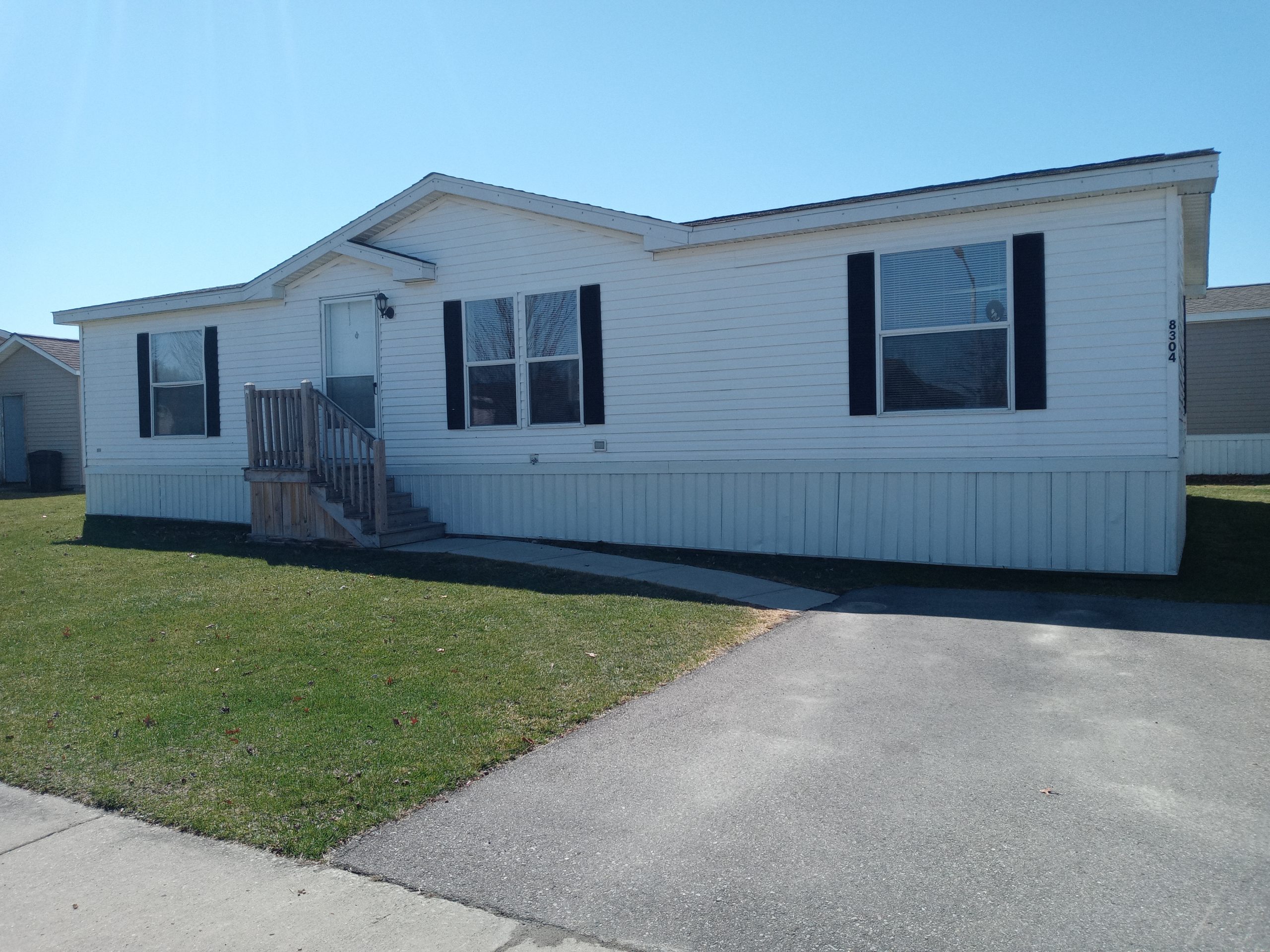
Triple–Wides
Triple-wides are made up of three different sections, which are each transported separately, and then put together at the home’s final location. They are, however, less common in comparison to double-wide and single-wide units.
Benefits of Investing in a Mobile Home
There are several reasons why real estate investors should shift to mobile homes:
Affordability
One benefit of buying a mobile home is that they are very affordable. No matter if you decide to buy or rent a manufactured home, it would most likely cost less compared to purchasing a traditional real estate home, or even renting an apartment.
This can be attributed to the fact that they are mass-produced in industries and factories, thus materials to build manufactured housing units overall cost less.
More Luxurious Options
You can add the same luxury items to a mobile home as you would a stick-built home, such as hardwood flooring, upgraded fixtures, and granite countertops, just to name a few.
If you are buying a manufactured home so that you can rent to other people, you might be able to charge more if it includes some of these luxury options.
Lower Repair and Maintenance Costs
Nothing makes a buyer happier than knowing that their product will have a low upkeep and maintenance cost, which is exactly what mobile homes offer.
With these style homes, most repairs you can even think of happening to a traditional real estate home will most certainly cost less if the same happens to a manufactured home.
Ultimately, these homes will save you time and from the stress of dealing with contractors.
Safety
Mobile homes are very safe and secure to live in. This is because they are built under the U.S. Department of Housing and Urban Development HUD Code standards.
If you buy one of these houses, you won’t have to worry whether your property is situated in high-risk areas for storms, hurricanes or natural disasters. This is because each mobile home is manufactured to withstand the type of treacherous weather that the area of the country or zone they are located in is prone to.
High Demand
There is a rise in population, not only in the United States, but also in the whole world.
This means that there is an increased demand for housing and affordable accommodation.
If you invest in mobile homes, there will be a high demand for them. They can, therefore, be instant cash flow properties if you decide to rent them out.
Lower Tenant Turnover
Mobile homes have a lower turnover rate than other types of homes, including, but not limited to, stick-built homes, apartments, modular homes, multi-family homes and single-family homes.
This is mainly due to the fact they are much more affordable than most other housing options, and they are cheaper to maintain.
Less Competition
Few people have invested in mobile homes. This limited competition would mean less competition for you, if you decide to invest in a manufactured home and make it an income generating asset.
Downsides of Investing in Mobile Homes
Though mobile homes come with a plethora of benefits, there are also some downsides of investing in them that we should look at.
It is upon you to interpret these downsides and devise ways that you can use to mitigate them.
Let’s go through some of the downsides:
Negative Stigma
Many people have reported discrimination when they live in mobile homes.
The majority of the middle-class population sees them as options for the poor in society. Others think that these housing units are dangerous.
Such discouragements could make it difficult for you to find tenants if you decide on investing in manufactured homes.
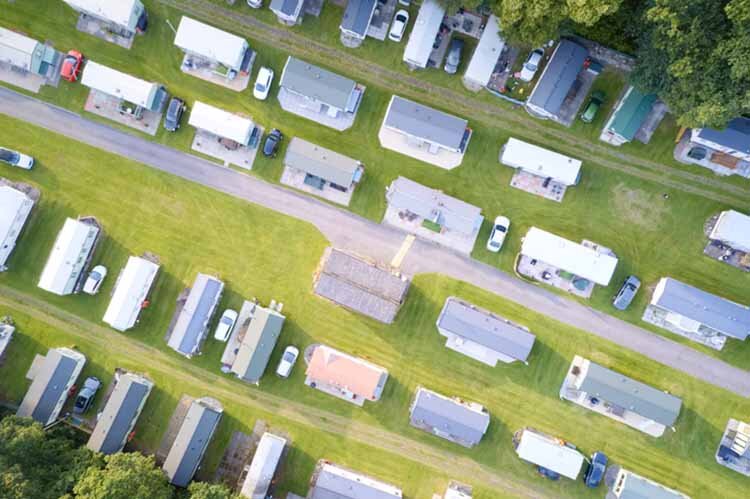
Quick Depreciation
It’s common knowledge that mobile homes depreciate quicker than traditional real estate homes.
While this is advantageous for paying taxes, it becomes disadvantageous as far as the resale value is concerned.
Need for Land
Mobile homes require a piece of real estate property to be set on. You’ll either have to acquire land, or lease land, where your house can sit.
A good option to find leased land is to find space in mobile home parks which proves to be difficult due to their high popularity. With that said, if you do find a mobile home park, you’ll set up such homes without pressure.
You can also, possibly, find a home to purchase from a mobile home park, which, in that case, the home setup will already be taken care of for you.
Limited Financial Options
As a potential real estate investor, after heavy research you may find out that you want to develop mobile home pads instead of traditional houses.
With that said, the sad news is that most traditional lenders won’t offer you, or potential buyers, loans for manufactured homes.
This is because mobile homes, unless purchased with the land that it sits on, are considered personal property.
Because of this, your financing options remain limited, and the options you do have will most likely charge higher interest rates compared to traditional mortgages.
Mobile Homes vs. Modular Homes vs. Manufactured Homes
Now that we have looked at the pros and cons of investing in mobile homes, you must understand how they differ from modular homes and manufactured homes.
Some people use the term ‘mobile homes’ interchangeably with ‘manufactured homes’ and ‘modular homes,’ however, they are very different.
Manufactured homes and mobile homes were distinguished back in 1974, back when the U.S. Department of Housing and Urban Development HUD Code was passed.
Modern manufactured housing differs from mobile homes both in design and construction.
A manufactured home is developed with high quality materials in a climate-controlled factory or facility. Manufactured homes also come in three sizes: triple-wide, double-wide and single-wide.
Manufactured housing and mobile homes differ from modular homes, mainly due to the type of foundation used in each case.
A manufactured home has a beam and pier foundation with skirting. A contractor who understands how to develop a manufactured home can relocate it easily.
Modular homes are also constructed in a factory or facility, and then transported to their location. With that said, modular homes, once set on their permanent foundation, are never moved again.
Another major difference between modular homes and manufactured homes or mobile homes is that mobile and manufactured homes are built according to the HUD Code, while modular homes are developed according to state and local codes.
The building codes of a modular home can vary with the state and locality involved.
The Process of Buying a Mobile Home
Follow through the guide below to achieve a successful and good investment:
Understand the Different Types of Mobile Homes
As we have seen above, there are most commonly two types of a manufactured home or mobile home; single-wide units and double-wide units.
They differ mainly in size, with the single-wide homes being roughly half the size of double-wide units.
There is also a difference in how rooms are arranged, with rooms in double-wide units being separated by a hallway, while those in single-wide units having more of a back to back connection.
A good idea may be to frequent a mobile home park, or two. Visiting a mobile home park will give you a great perspective on these various layouts. Many mobile home parks offer all types of homes.
Choose Between a Used or New Home
Which, between a used and new home, would work best for you?
Depending on your needs, you should be able to answer this question with ease. Here, it would help if you understood both options have their pros and cons.
If you settle on a new mobile home, ensure that you carry out enough research on the different manufacturers and dealers.
Take the time to compare a minimum of three options before making a decision. Also, before you even reach out to a company, carry out an online search to check out their reviews. Another great idea is to ask for recommendations from family members and friends on the best retailers.
If you decide to go for a used mobile home, then consider working with a local agent to identify the best options available for sale.
Look at Amenities
It’s important to check out the different amenities a mobile home offers that would contribute to its resale value, no matter if you’re buying a new or used house.
Apart from stainless steel appliances and granite countertops, there are other factors to consider, which include:
- Built-in water cutoff valves
- Vinyl siding
- Insulation
- Singled and pitched roofing
- Wood flooring
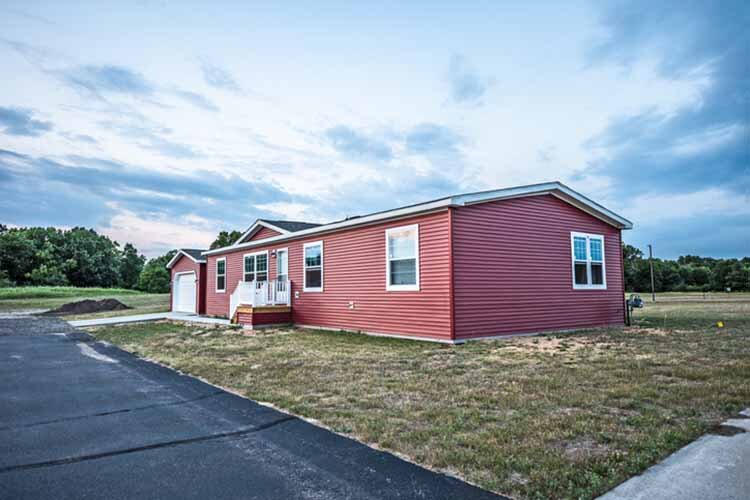
Explore the Financing Options
You still have a chance of getting a traditional mortgage, but only if you look for mobile homes that are considered ‘real property’ by lenders.
This includes properties that:
- Exist on a permanent foundation
- They are sold with the land on which they are established
- Were developed after the current HUD standards came into existence
If your mobile home of choice doesn’t achieve these requirements, there is still a possibility of getting financing through chattel loans.
Have the Mobile Home Delivered and Set–Up
Before you close on the mobile home real estate property, some retailers will offer you an option of including taxes, insurance, and warranties in the home’s final price.
Though this offer looks good on the surface, it would be unwise to take it. It would be best if you, instead, secured these extras from a local broker.
After closing on a mobile home, contact a transporter to deliver the home to the site you wish it to be installed, unless the manufacturer/dealership offers this service for you.
It would be best if you shop around for different quotes. A complete transport and installation could take you about 21 days.
Conclusion
There is no argument that mobile homes are great if you’re looking for an alternative real estate investment property. The only thing you should prepare for is how to handle the downsides.
For instance, when advertising the home for rent, look for the best niche websites to market it on, since traditional tenants would ignore your listings on any popular stick-built home websites.
To ensure that you’re getting into a good investment, do the math and make sure that the property will be a net positive for you. If it doesn’t make economic sense, you either move to the next mobile home for sale or head back to the traditional housing market.
We hope that this venture is a good investment for you and your family!
Read more
5 years ago
·
Justin Becker ·
Comments Off on Mobile Homes for Sale in Grand Rapids, MI: The Good and Bad
Mobile homes are becoming increasingly popular in today’s property market, which is why the cost of buying one has been rising over the last few years.
If you are selling a mobile home in Grand Rapids, MI 49548 or Grand Rapids, MI 49544, you need to understand the entire process for a successful sale.
Apart from the process, there are some logistical challenges that require the transaction to be handled by a professional realtor.
Mobile Homes for Sale in Grand Rapids, MI
In Grand Rapids, MI, there are some manufactured homes for sale that are amazingly done, such that it is difficult to tell that it is a mobile home.
Here are some of the things that you should know if you happen to have manufactured homes for sale in Grand Rapids, MI 49548 or Grand Rapids, MI 49544.
Understand the Local Mobile Home Market
When selling your mobile home:
The main objective is to close the deal as fast as possible.
Some sellers often assume that potential buyers will be lining up to pay for their manufactured homes. Unfortunately this is not the case, unless your mobile home is the least expensive in the area, or the most attractive compared to any other property in Grand Rapids, MI 49548 or 49544.
The local manufactured homes market is such that there are two types of buyers. There are those who are willing to make cash payments for used modular homes, or others that are looking to finance the purchase.
The cash buyers are mostly people who have either just cashed in on their tax refunds, they are downsizing from a more traditional stick-built home, or they are using some other form of savings to make the purchase.
There are also the potential buyers willing to make a down payment for your mobile home, then make subsequent payments over a period of time.
You need to understand the local dynamics in the Grand Rapids, MI real estate market so that you don’t end up selling to the wrong buyer.
For starters, make sure that when selling to a payment buyer, collect as much of a down payment as you can upfront, in case the buyer defaults.
Understand Your Options Before Making the Sale
Now that you understand the difference between payment and cash buyers for manufactured homes in Grand Rapids, MI, the next step is establishing how fast you need to sell the mobile home.
Of course everyone is looking to sell, and sell fast.
If you have been trying to sell your mobile home for some time, with no results, there could be something that you are doing wrong, like inflating the value of the mobile home.
One of the things that the buyer will look for is the location of the mobile home, whether it’s in Grand Rapids, MI 49548, Grand Rapids, MI 49544, or even just outside of Grand Rapids, like Kentwood, MI 49548.
For example, say the manufactured home is located in Brentwood Village Mobile Home Park, located at 201 60th St SE, Kentwood, MI 49548. The average mobile home in Brentwood Village will not appraise as high as homes located in either Alpine Meadows, which can be found at 3800 Fruit Ridge Ave NW, Grand Rapids, MI 49544, or Kentwood Mobile Home Park, located at 6122 S. Division St, Grand Rapids, MI 49548, strictly based on the location.
If you need to sell your mobile home in Grand Rapids, MI fast, then you are most likely looking for a cash buyer.
If you are fortunate enough to have the luxury of time when selling your Grand Rapids, MI mobile home, then make sure that you market the house in the best way possible in order to get the maximum value for the property.
Take Advantage of All Marketing Platforms
There are so many ways that you can advertise your mobile home in Grand Rapids, MI in order to get a buyer much faster.
As the original seller or agent, always stay updated on the current trends in property market advertising options.
For instance, there are specialty apps geared towards real estate listings, for both buyers and sellers. Having a common digital marketplace means that your mobile home listing, in or near Grand Rapids, MI, will be viewed by the people who matter most.
Social media has also emerged as one of the best advertising platforms for properties for sale.
With that said, you should never ignore the hidden power of traditional advertising methods, such as print media. Strategies like this still have a huge impact in the real estate world, and cannot be wished away.
To maximize the exposure of your mobile home listing, you should choose to advertise on a multitude of platforms in order to have a wider audience reach.
Know What Your Mobile Home is Worth
If you are selling a Grand Rapids, MI mobile home, you probably know the area much better than a person from outside these parts.
If you are not sure about the value of your mobile home in either Grand Rapids, MI 49544 or Grand Rapids, MI 49548, then you should have the property appraised. This ensures that you sell the mobile home for what it is worth.
Selling the house at an inflated price may make it even more difficult for you to find a buyer. Considering how competitive the mobile home for sale market is, you cannot afford to over-quote the value of your beautiful home, especially if you need to sell.
Undervaluing the property can also work to your detriment, as it means that you will lose on the actual value of the property.
Selling at a lower cost than the actual value of the house should only be done under unique circumstances, such as when you need to sell the house fast or you are facing eviction for various rent payment failures to a mobile home community.
A good rule of thumb is never to allow yourself to be bullied into accepting an offer that will leave you feeling short-changed.
Verify the Buyer Has Funds, Follow-Up, Then Close the Deal
Real estate agents and home sellers face a great challenge, which is coming across potential buyers that are not genuine.
Of course when selling mobile homes for sale in or near either Grand Rapids, MI 49548 or Grand Rapids, MI 49544, due to the hot market right now, you will likely get many offers from prospective buyers. The problem is that you need to identify the people who are actually serious about the deal in an effort to not wasting your time.
Make sure that the buyer has funds to make the purchase so that you don’t end up spending your time on a non-existent deal. Once you accept an offer from a prospective buyer, follow-up with the person making the purchase so that the deal is completed within a set timeline.
Then, finally closing the deal allows you to focus on other issues, such as finding a new place to live.
Verifying whether the buyer has funds, following-up, and closing the deal should take place in a seamless manner. Make sure that you have all of the documents required by the local and city authorities in Grand Rapids, MI, so there are no further delays along the way.
Are Grand Rapids, MI Mobile Homes Worthy Investments?
With more people shifting their focus away from permanent properties, there are a lot of benefits that come with owning a mobile home in Grand Rapids, MI.
With that being said, you need to understand that different areas and neighborhoods will yield different outcomes, in the event that you decide to sell your mobile residence.
More importantly, an understanding of the local property market, and laws that apply to buying and selling of property, is also required for a successful sale.
It is this knowledge that gives homeowners an advantage when listing their mobile homes for sale in either Grand Rapids, MI 49544 or Grand Rapids, MI 49548.
Read more
5 years ago
·
Justin Becker ·
Comments Off on Where to Find Mobile Homes for Sale
Whether for recreational purposes or permanent living, a growing number of people are looking to purchase mobile homes for sale in Michigan.
Mobile homes for sale are inexpensive compared to traditional real estate homes. Simply put, a mobile home offers quality living at an affordable price. As such, it is one of the most popular forms of housing in the United States.
An estimated 20 million Americans live in manufactured homes, and the number keeps growing, according to the Manufactured Housing Institute.
Where to Find Mobile Homes for Sale
General affordability, low maintenance, and overall high demand are just a few reasons to invest in mobile home parks in Michigan. With that said, how do you find those mobile homes for sale?
Searching for mobile homes for sale in Michigan can be a complicated venture, if you are a new homebuyer.
Manufactured homes can come in a variety of sizes such as:
● Single-wide manufactured homes
● Double-wide manufactured homes
Ranging in size from 1 to 3 bedroom, and up to 1,300 sq.ft., there is a range of single section floor plan options.
You can find double-wide manufactured homes with 1, 2, 3, and even more than 4 bedrooms near you, in Michigan.
Whether you are searching for a single-wide mobile home, double-wide mobile homes, cheap mobile homes, used trailer homes, or any other variation of a used mobile home for sale, we hope to help you do that with this guide.
Search Online for Mobile Homes for Sale
One of the easiest and most convenient ways of finding a mobile home for sale in Michigan is to search online. Several online property sites either deal with mobile homes for sale exclusively or can connect you with prospective mobile home sellers.
It’s essential to do your due diligence here by researching every mobile home listing you’re interested in. Searching online can save you from the hassle of driving miles away throughout Michigan in search of mobile homes for sale.
That said, you can search through mobile home listings all over Michigan and see photos of the property before making the trip out there in person. Connect with us for more information on our available manufactured homes.
Many mobile home listings have photos, addresses, and descriptions, which you need to see if the home is worth pursuing.
Note: Online search can be separated into three different types:
1. General Real Estate Search
2. Mobile Home Niche-Specific Search
3. Classifieds
The above search options can help you land your dream manufactured home.
Talk to Real Estate Professionals
The best way to find the perfect mobile home for sale in Michigan is to find someone with real estate market knowledge.
If you need someone to guide you through your buying journey, there’s no one better than a real estate professional. Connect with us to land a professional to help you find your dream home.
Real estate agents in Michigan know the mobile home market well. However, not all agents have experience with a mobile home or RV properties, so look for a professional that does.
You must understand the type of housing you want. The more specific you can be, the easier it will be to find a suitable mobile home for sale.
The best thing about using agents is that they will save you many headaches finding the best manufactured home, but going this route will cost you a couple of bucks for a service fee.
That said, agents bring experience and expertise to the table, making the mobile home transaction smooth and stress-free.
Search Off-Market and Connect with Owners Directly
If you are looking for mobile homes for sale in Michigan, you can either search on or off-market listings.
On-market refers to properties actively listed for sale, either through listings platforms or otherwise. On the other hand, off-market refers to the nation’s entire asset stock of listed and unlisted properties.
One of the best ways to search off-market is to scour public records and piece-together information on individual properties.
To cut down the hassle, you will want to use a property intelligence platform such as Reonomy, designed to help you discover, connect and close new opportunities across the country.
When you go off-market, such platforms make it easy to narrow searches and uncover critical indicators that can point to a likely mobile home sale.
Find Mobile Homes for Sale with Driving Discovery
If you know of local mobile home parks in your area, simply driving through them and looking for signs that say “For Sale” hanging in a window or on a post is a great way to find the perfect deals on mobile homes.
If you don’t know of any parks, or would like to find more to visit, using a tool such as Google Maps is a great way to locate them.
Search for “mobile home parks near me, Michigan,” and the search result will be more than enough to guide you. You can choose from a variety such as 2 or 3 bedroom, near you.
Also, if you see someone out for a stroll, stop them and ask about a mobile home for sale. They could help you find great manufactured homes deals.
Final Thought
Mobile homes are growing in popularity; more and more people embrace the idea of simplicity; accepting the fact that less is more. Apart from its affordable pricing, manufactured homes offer quality living just like stick-built homes.
We understand how challenging the home search can be, so connect with us to cut the hassle and stress in finding the right mobile home.
Read more

